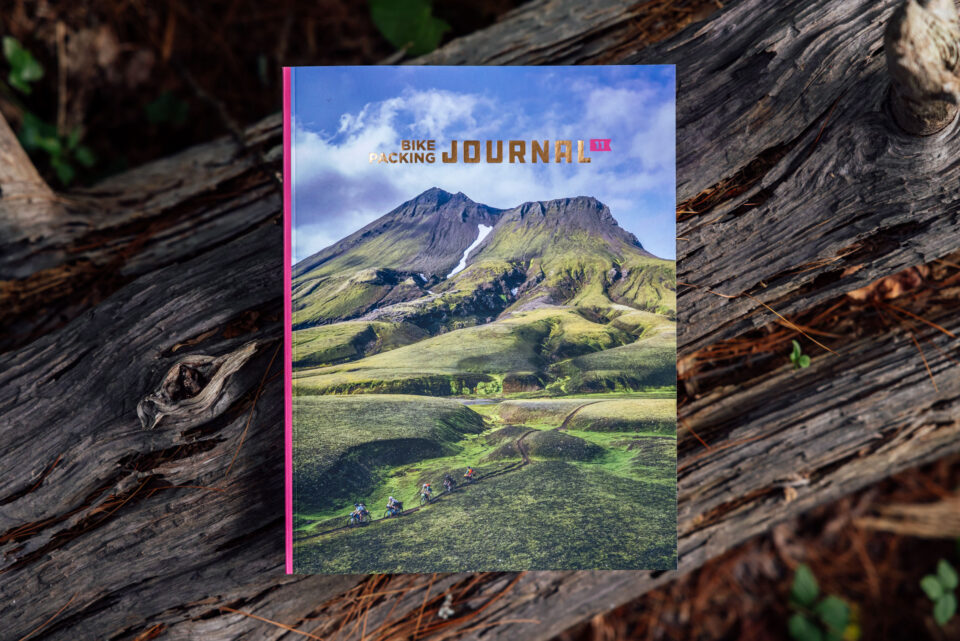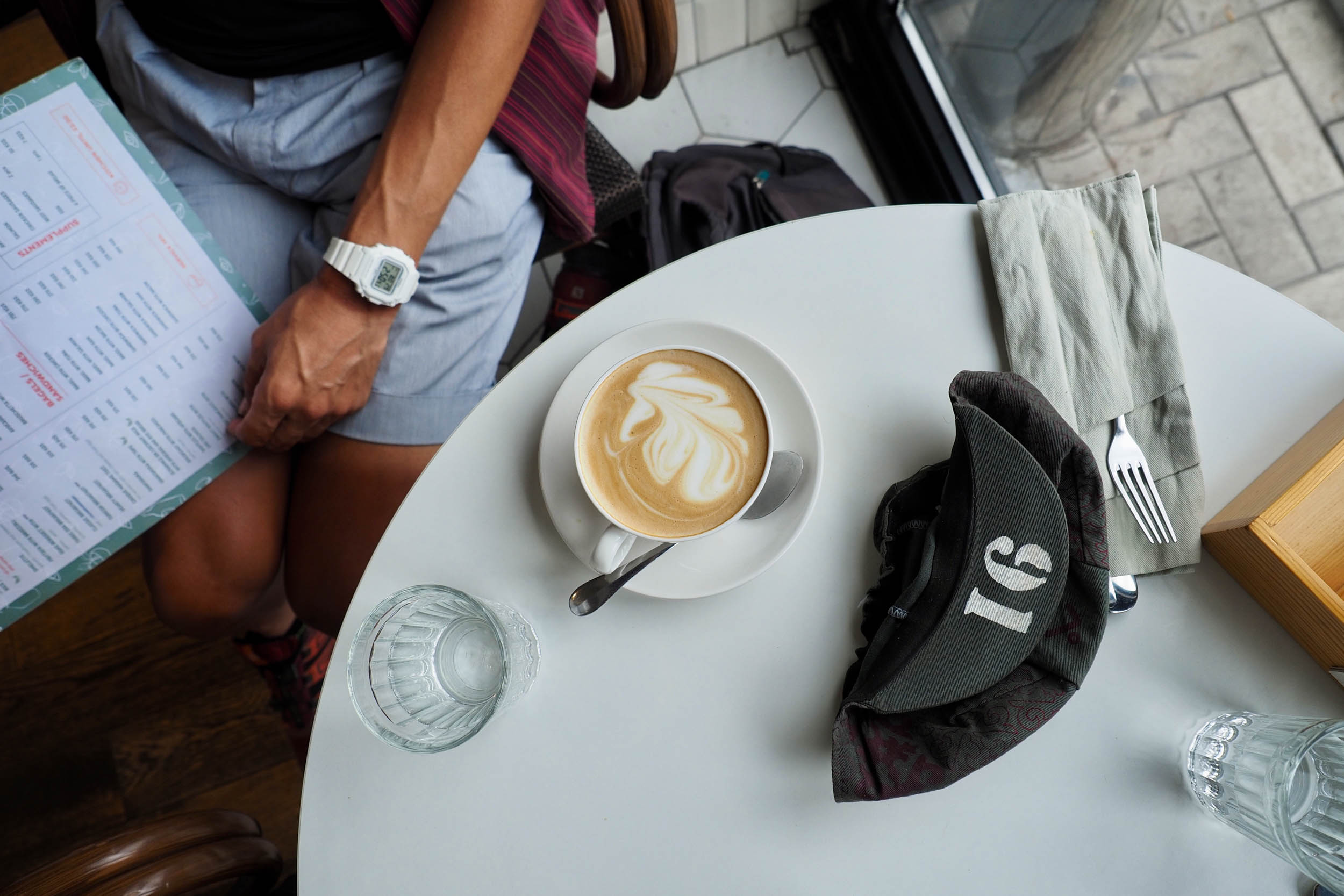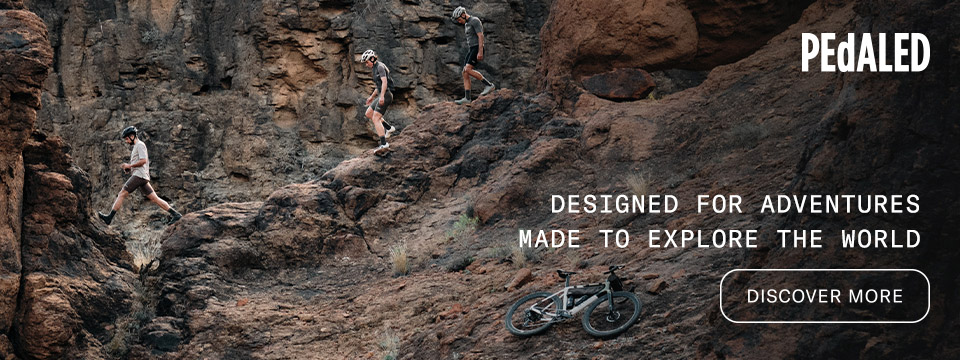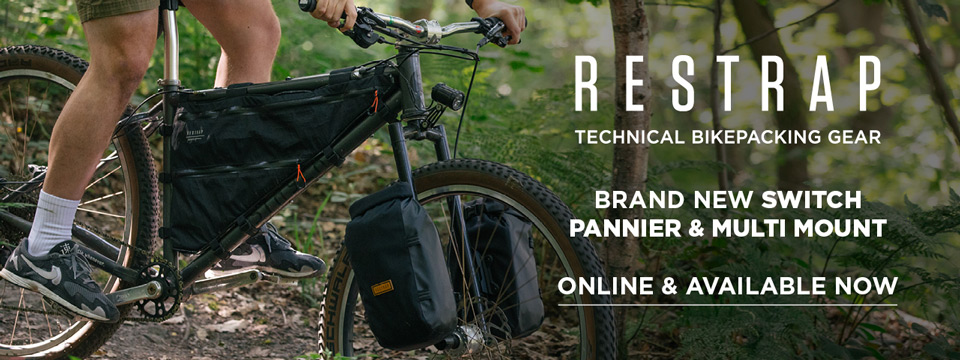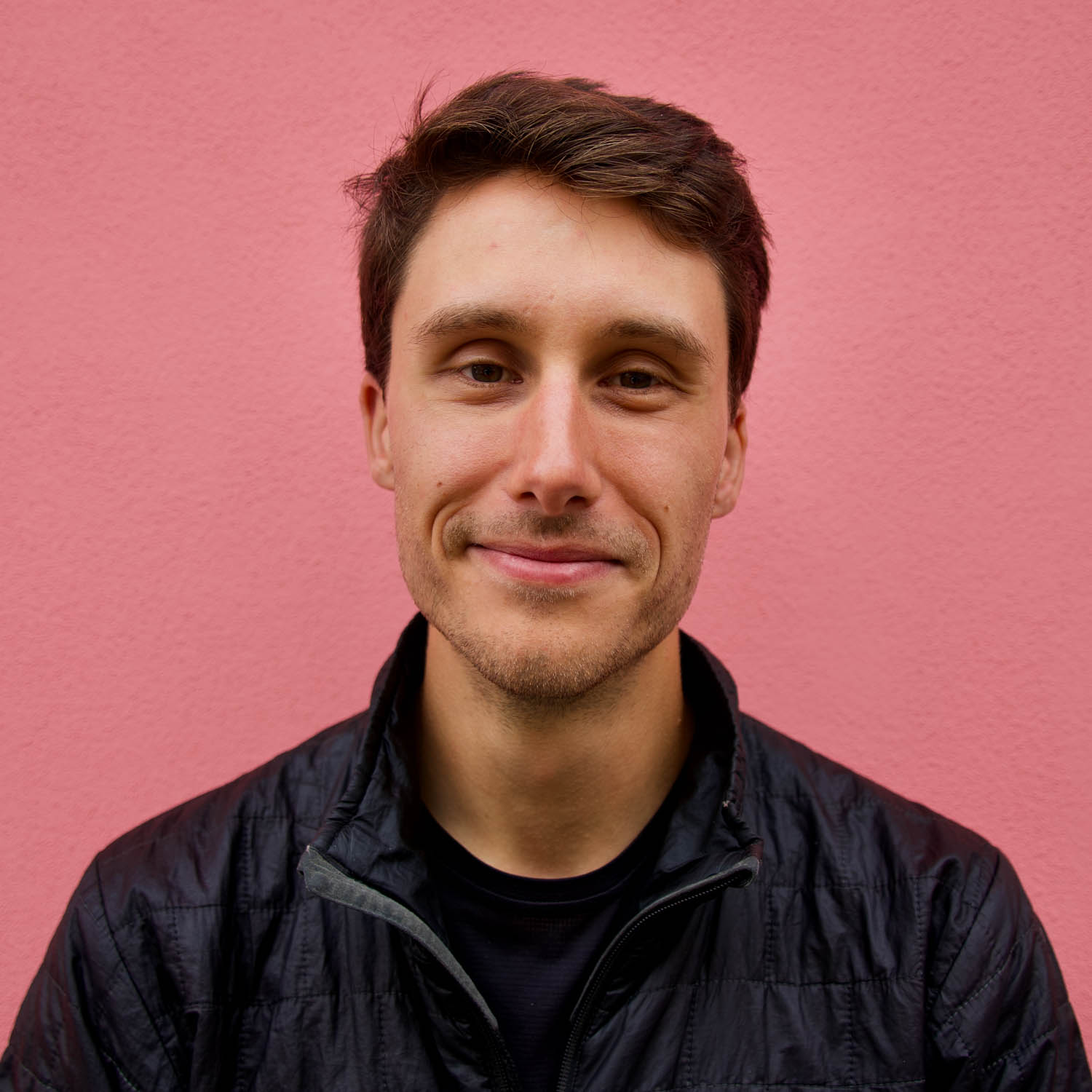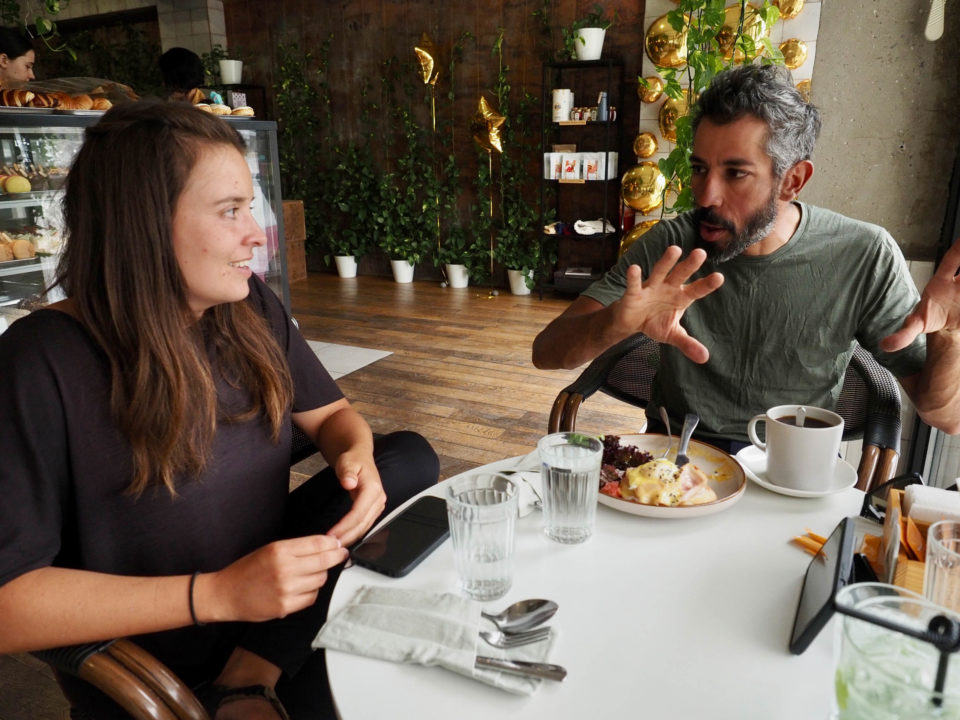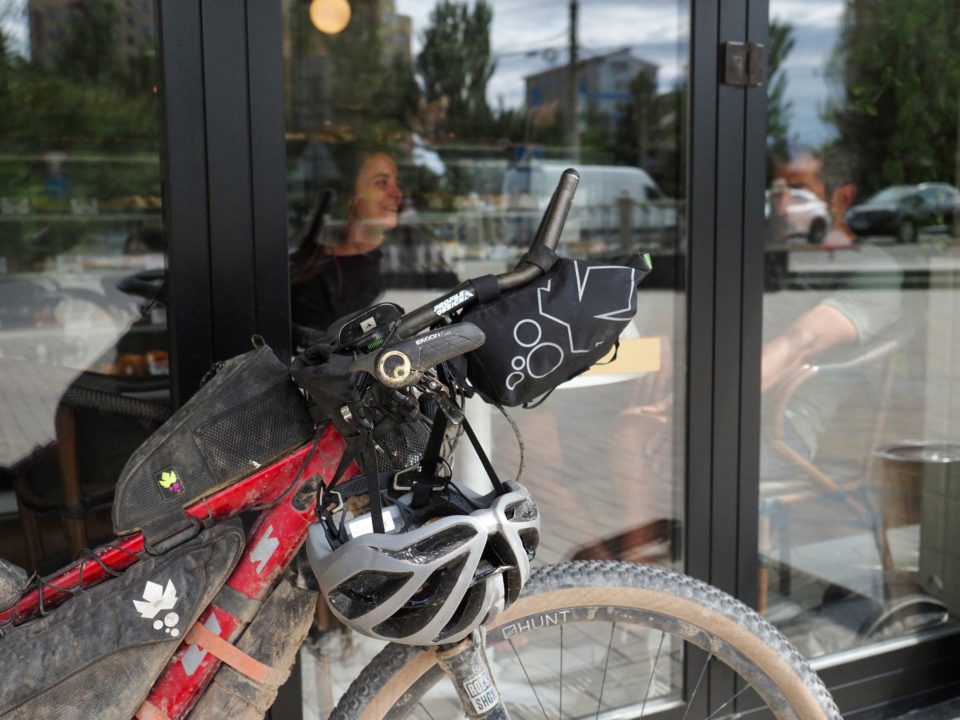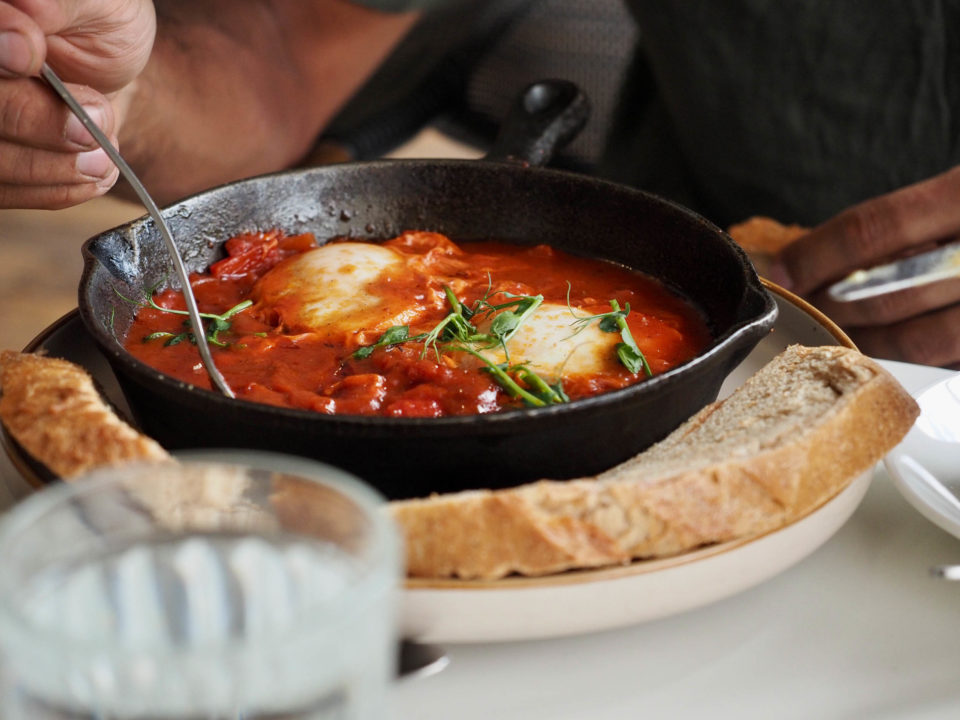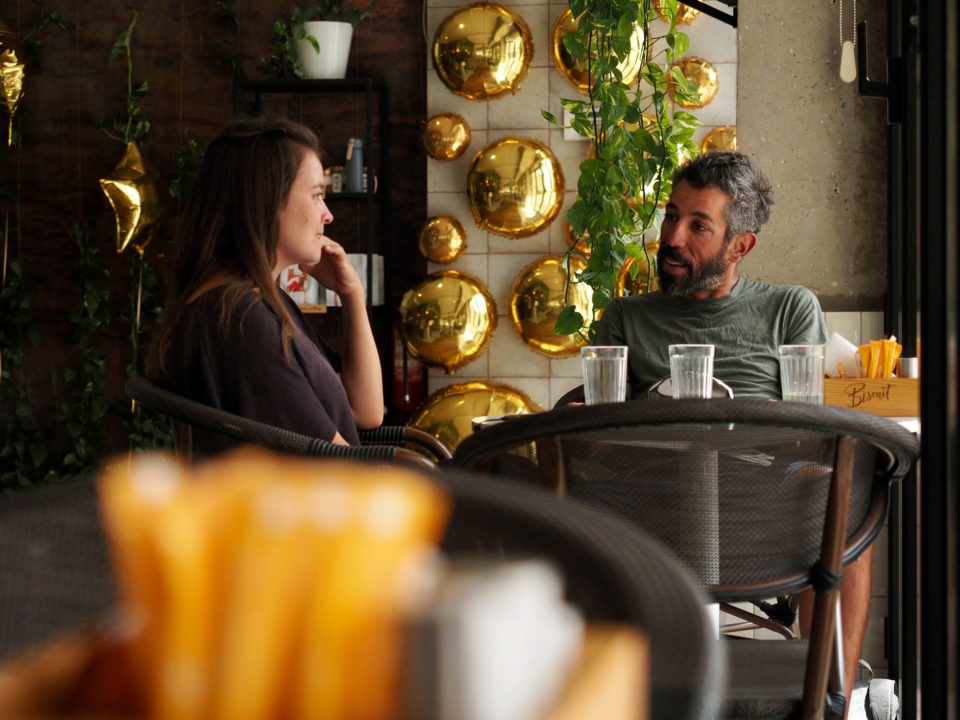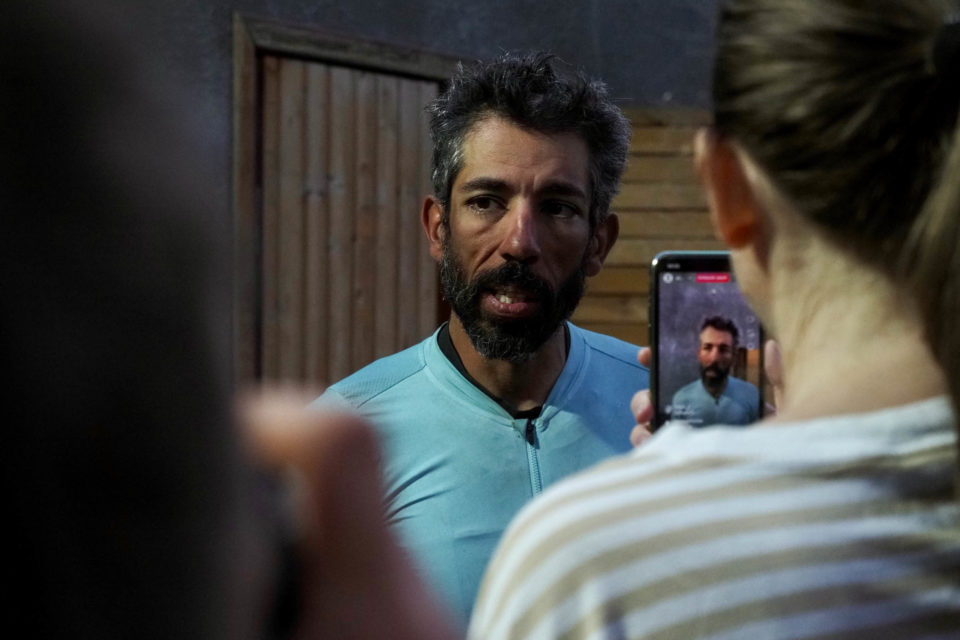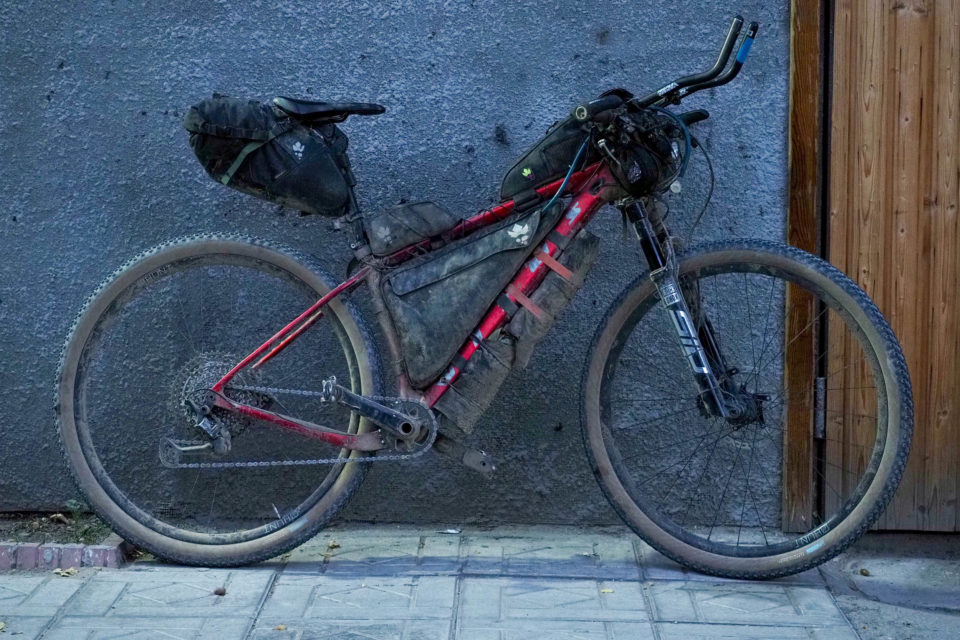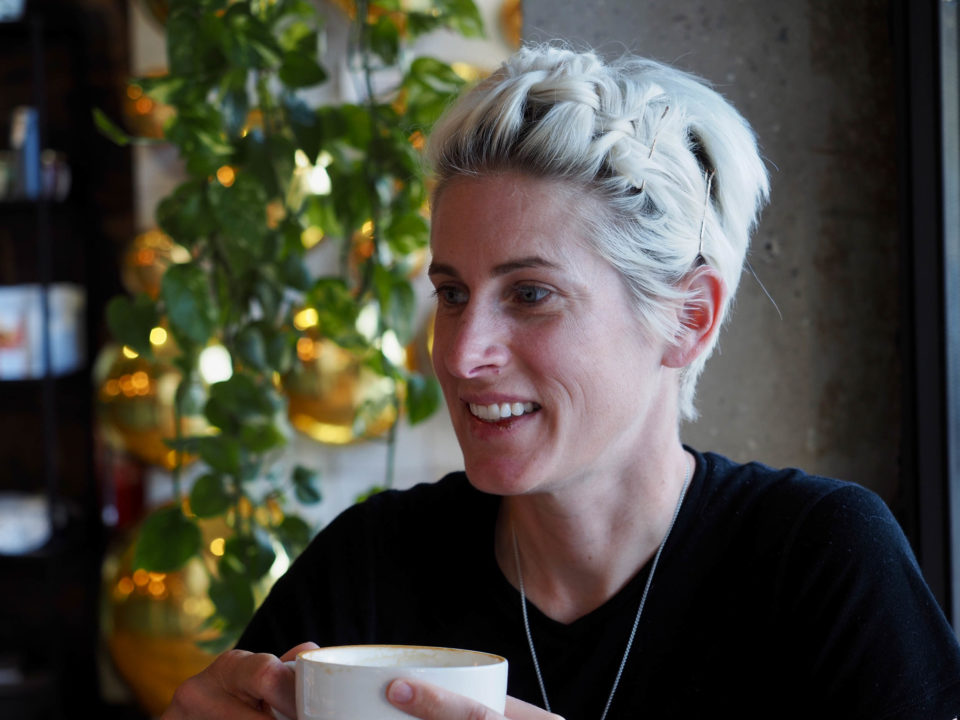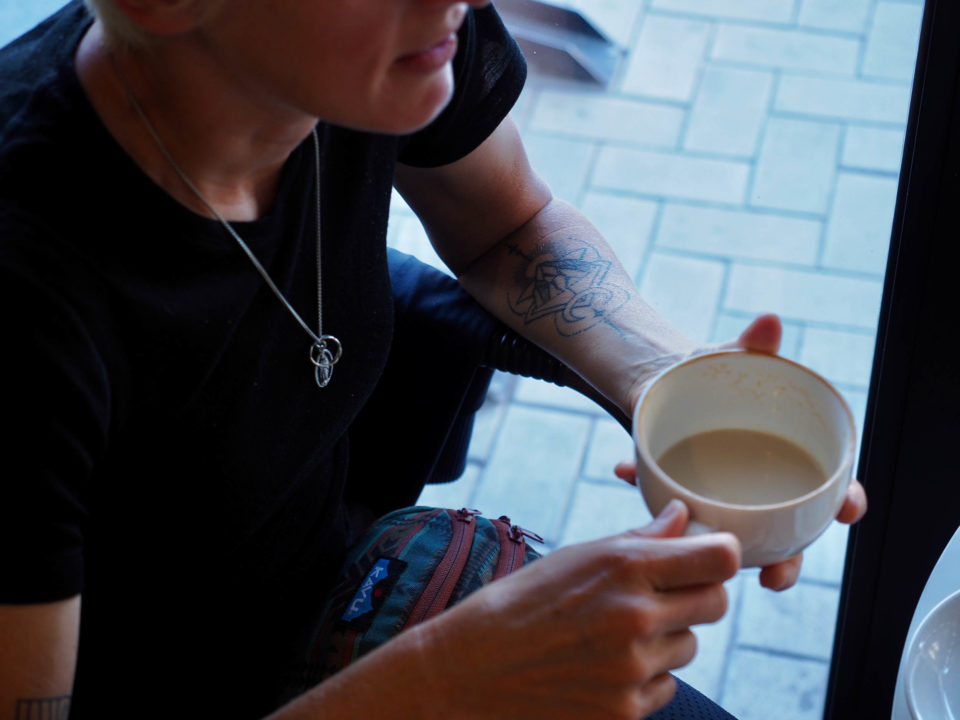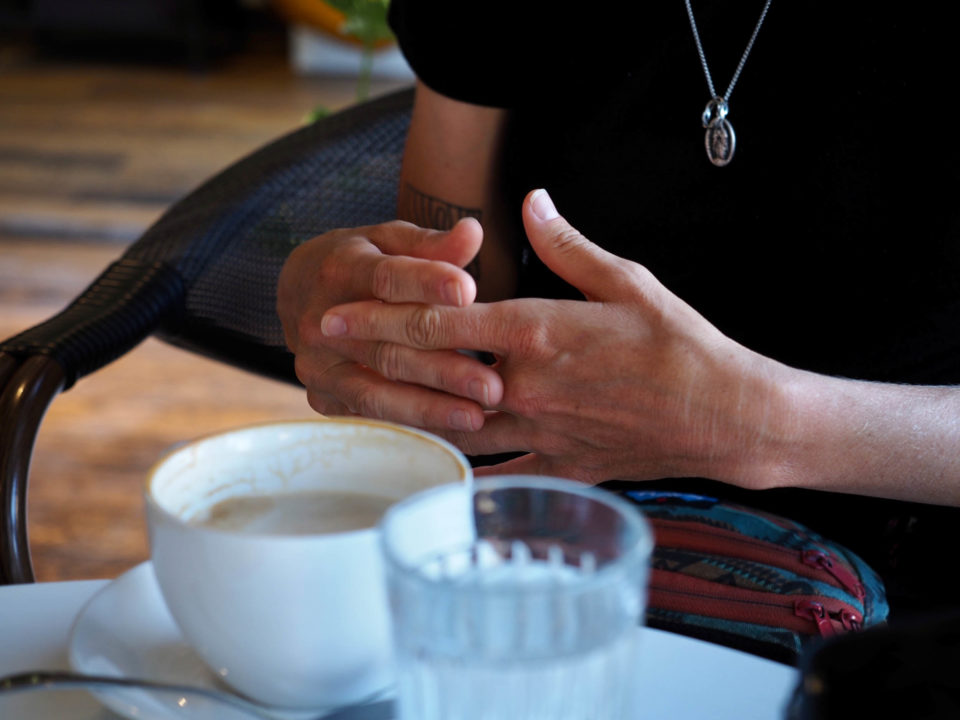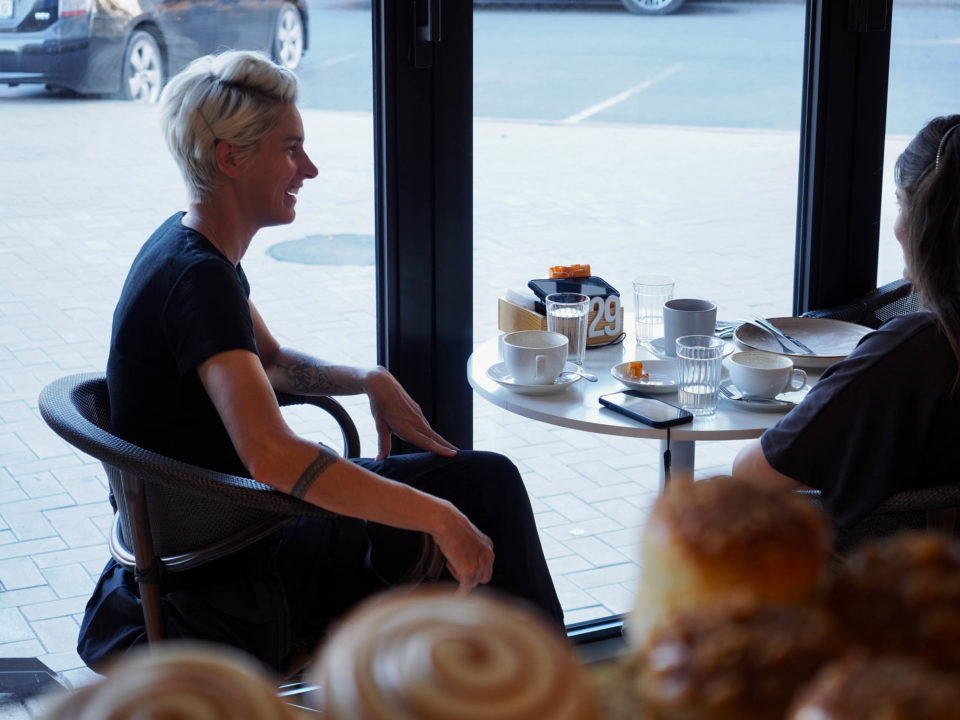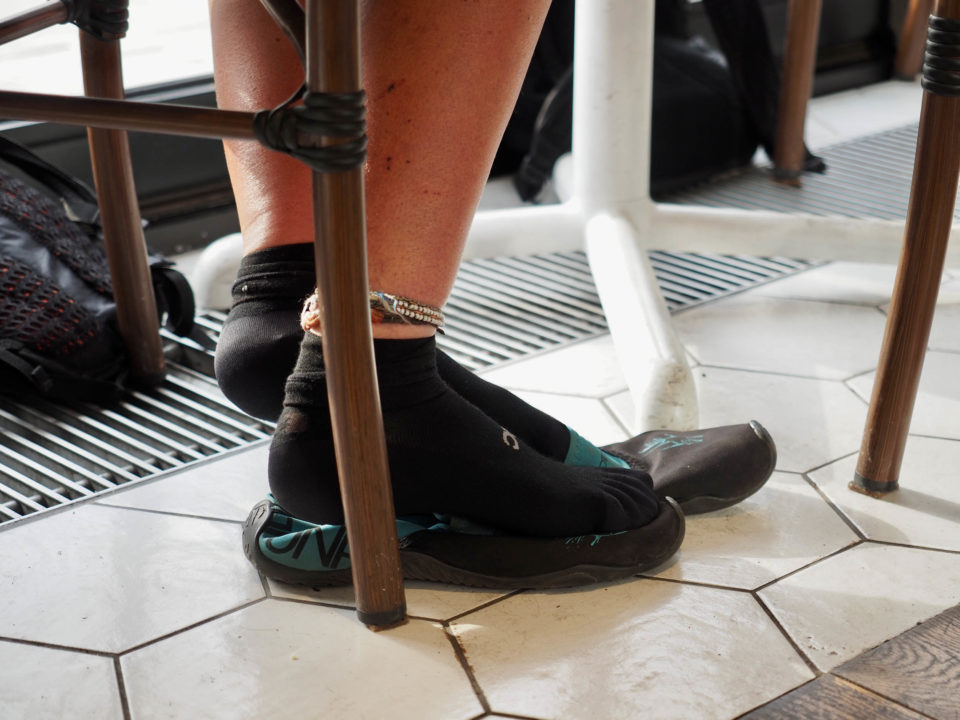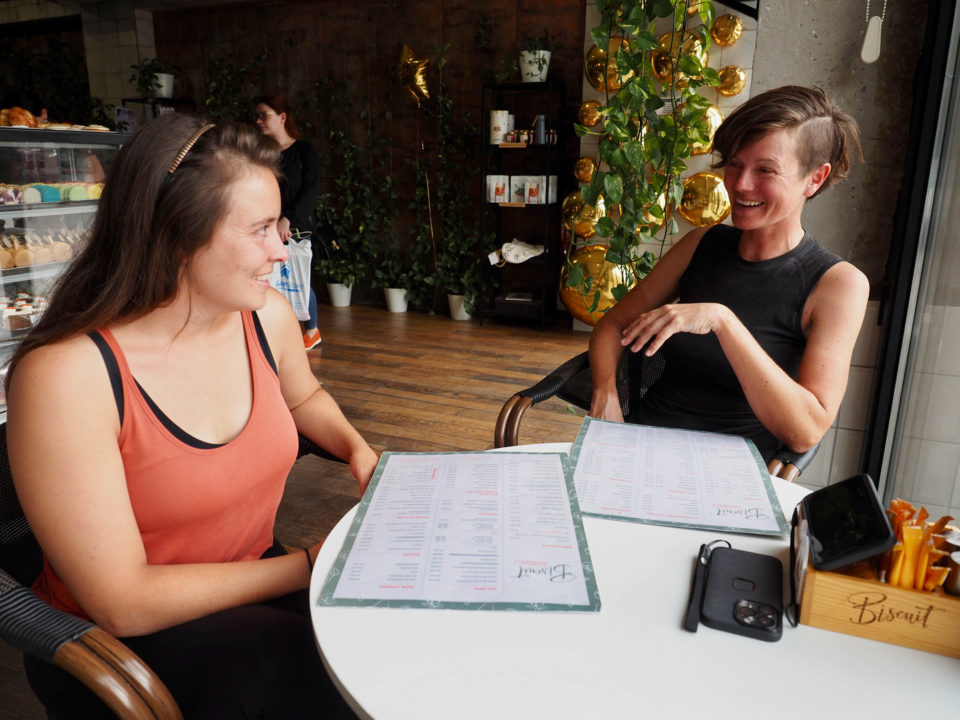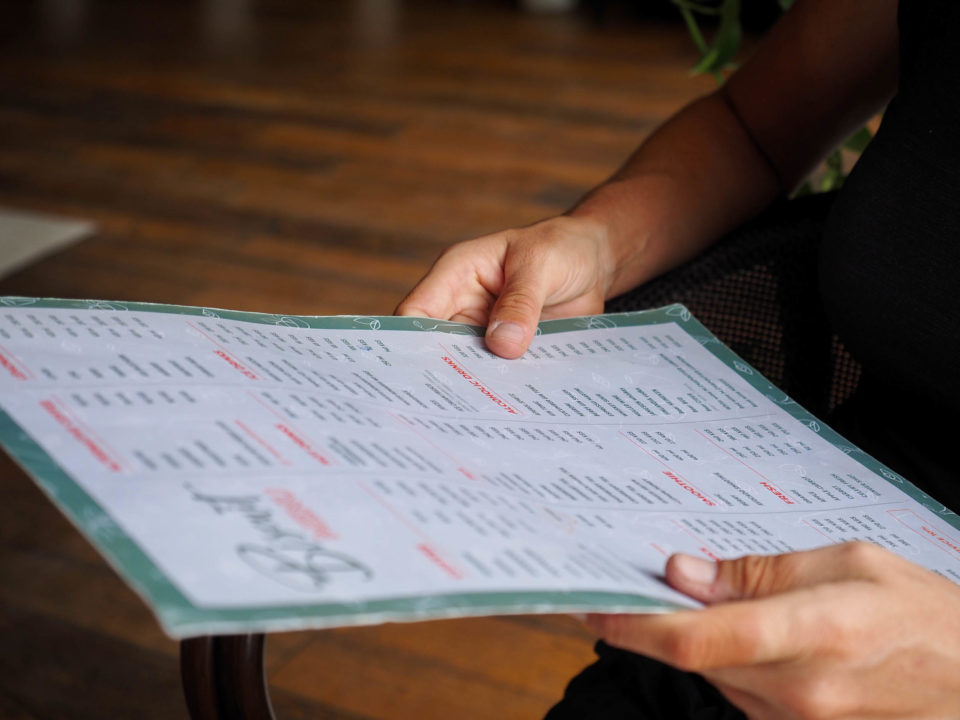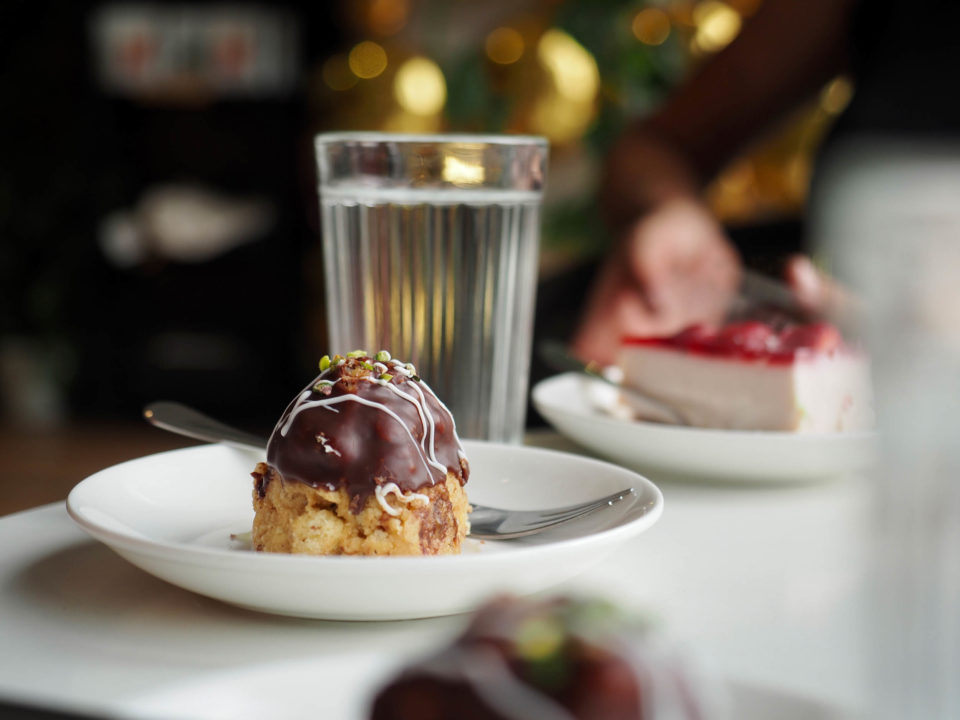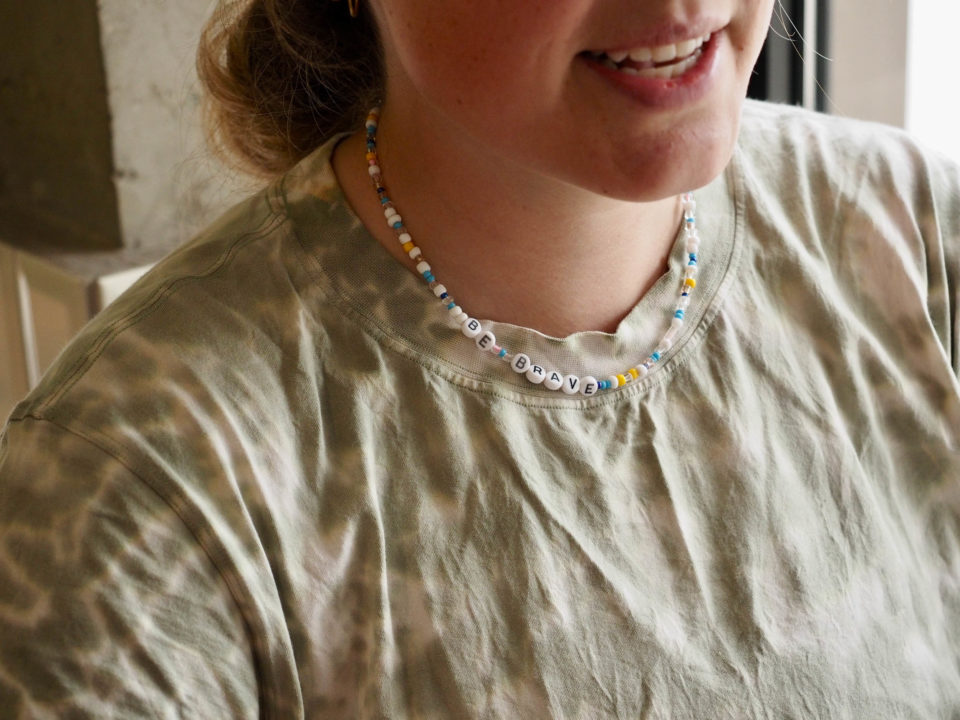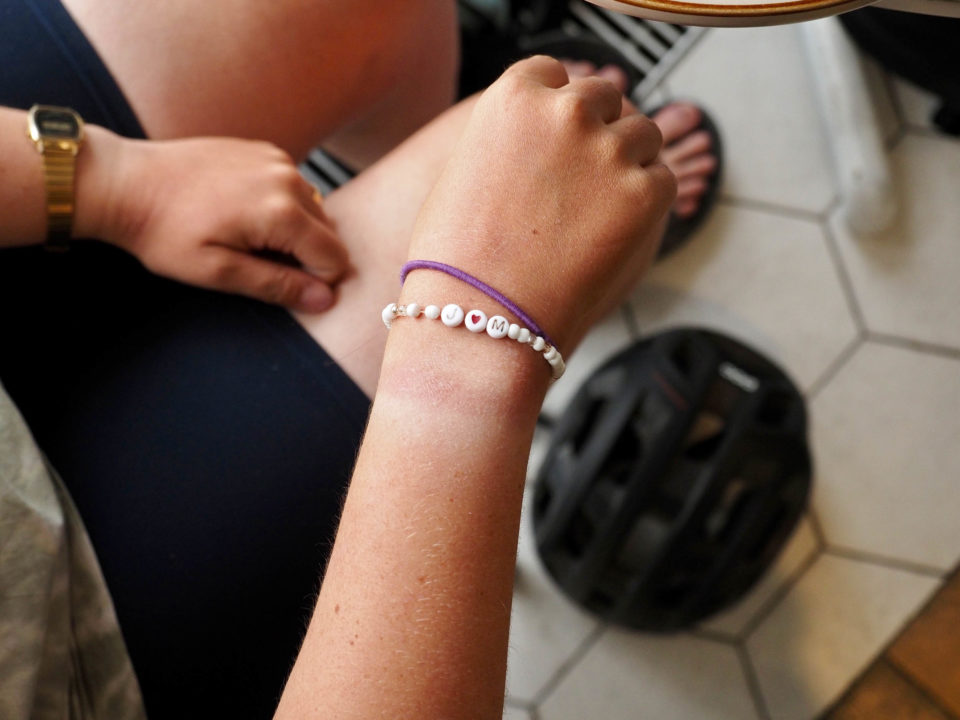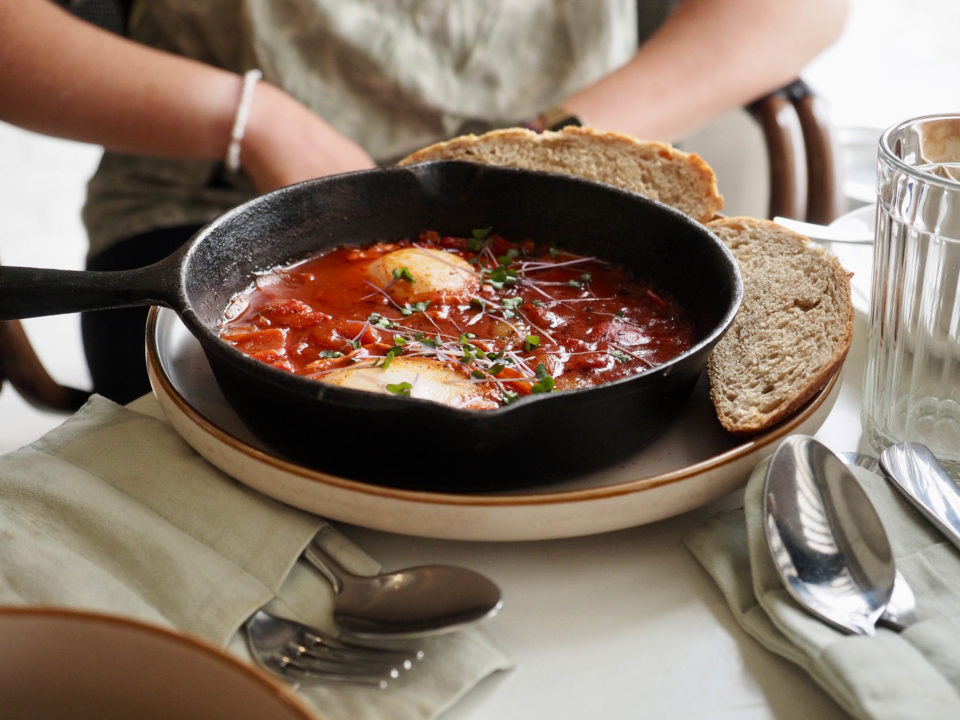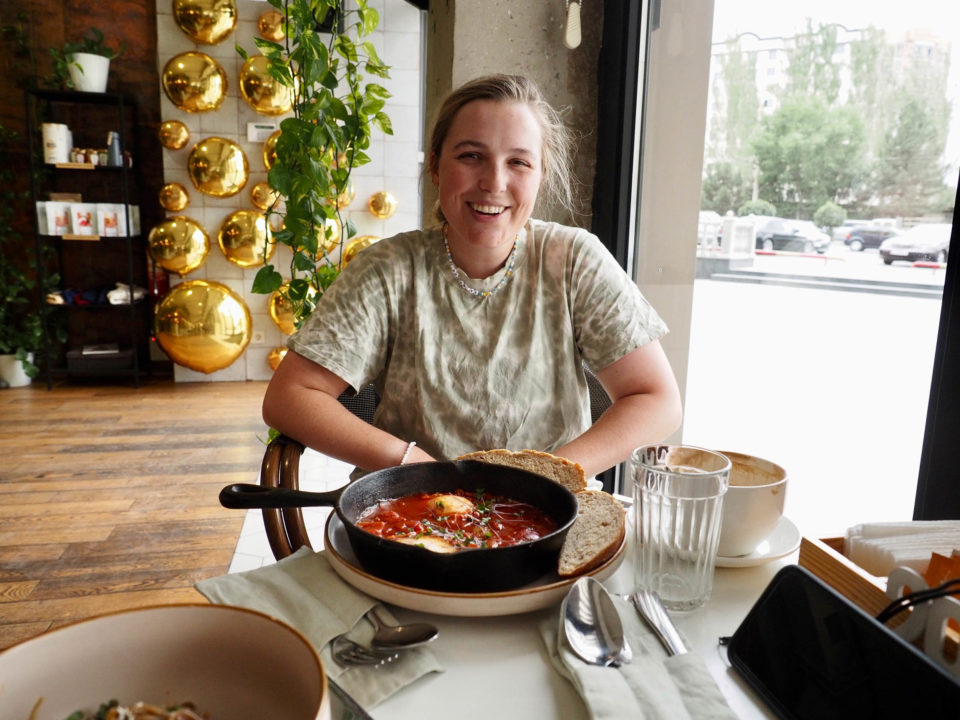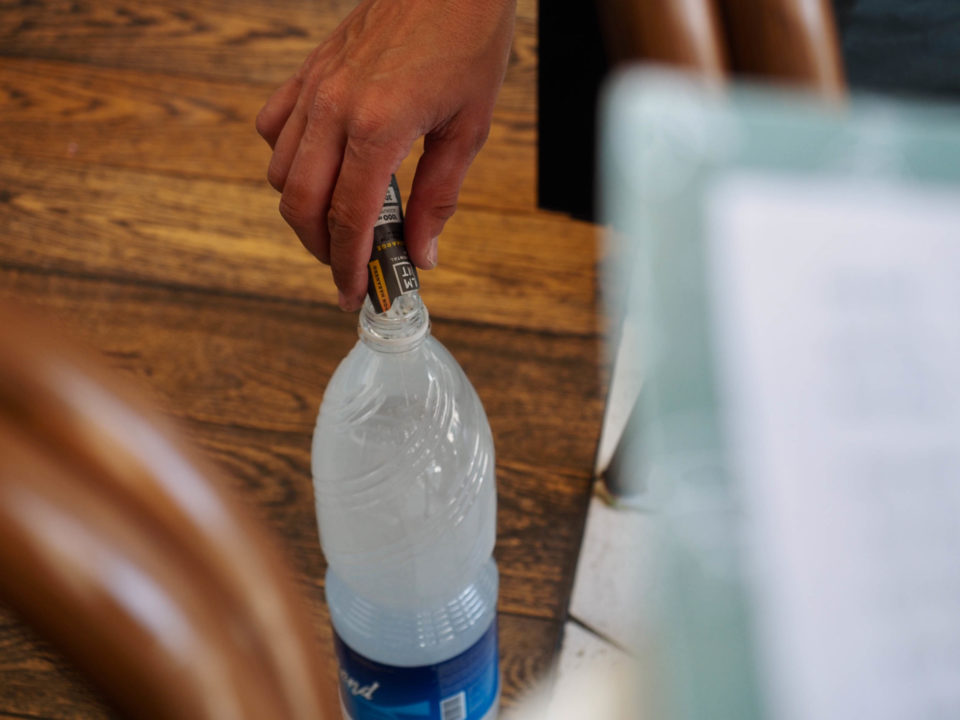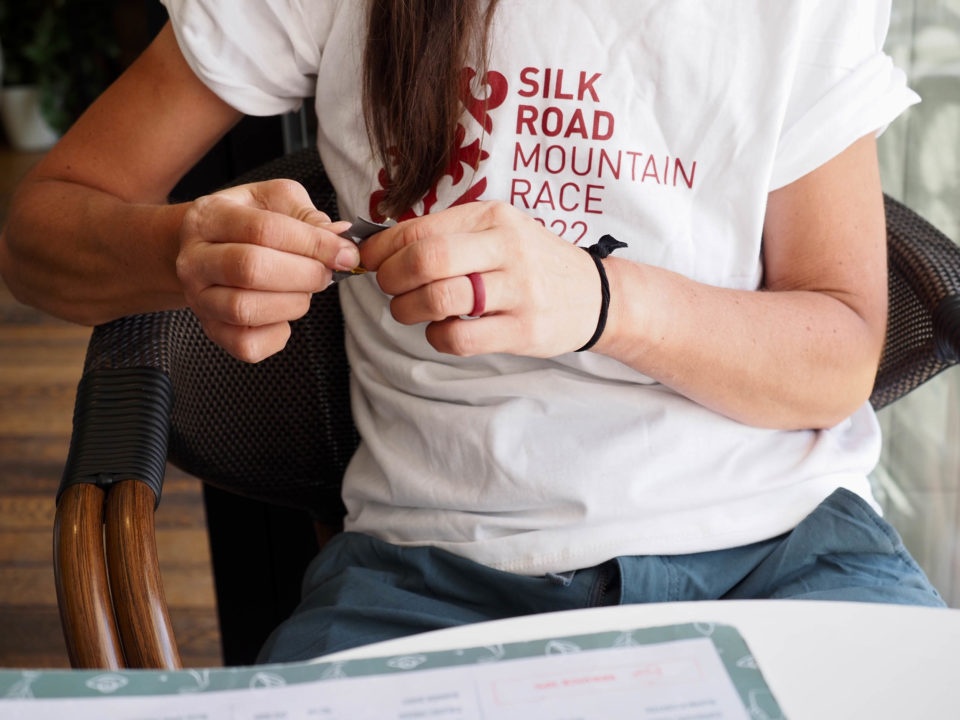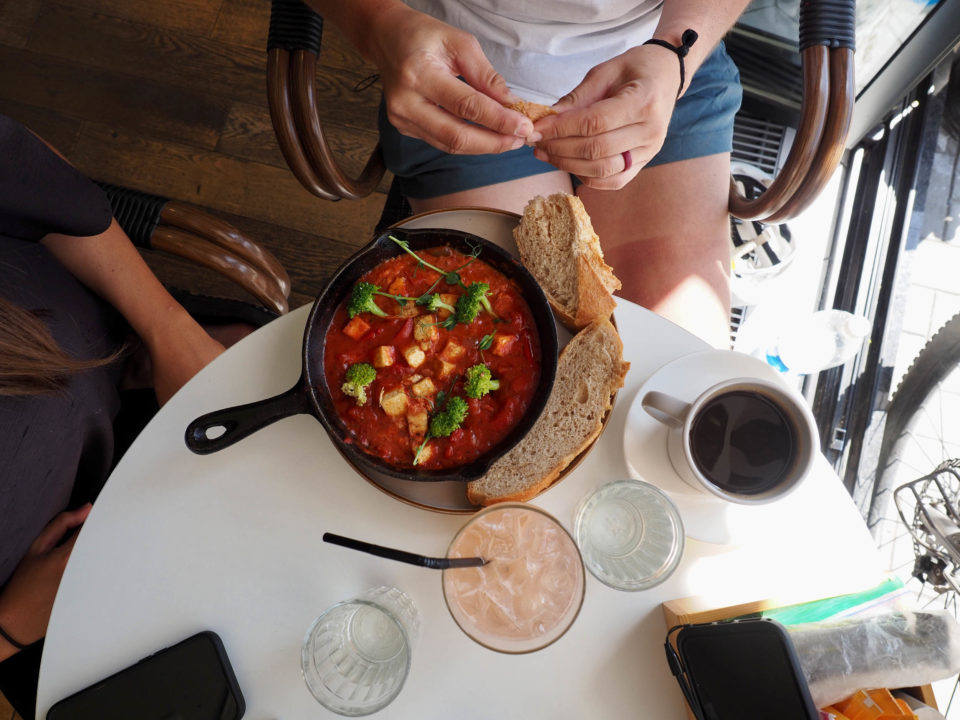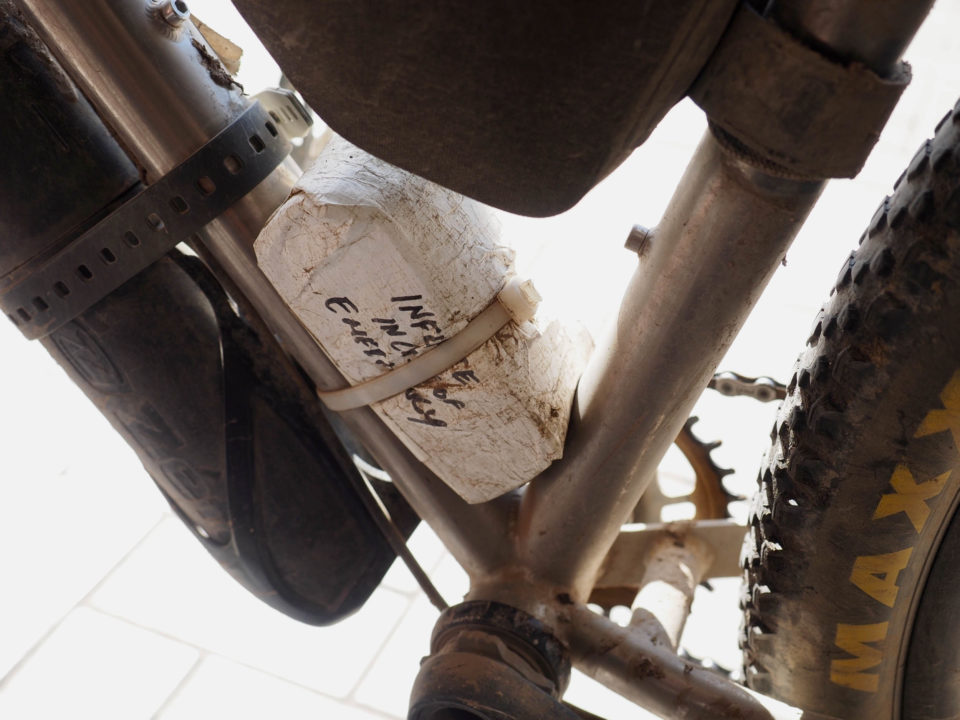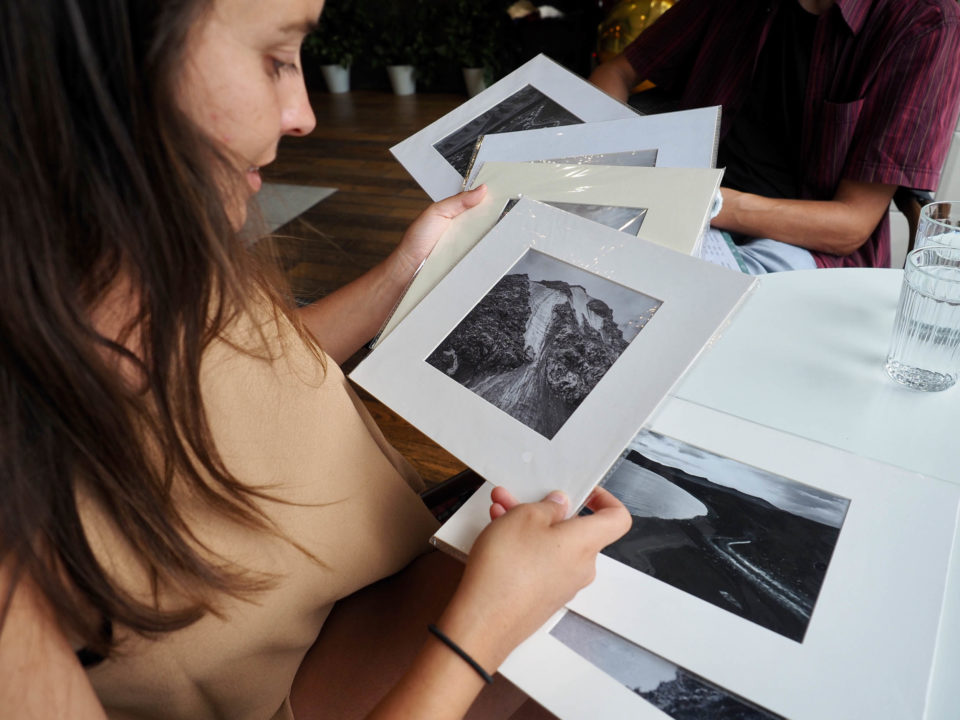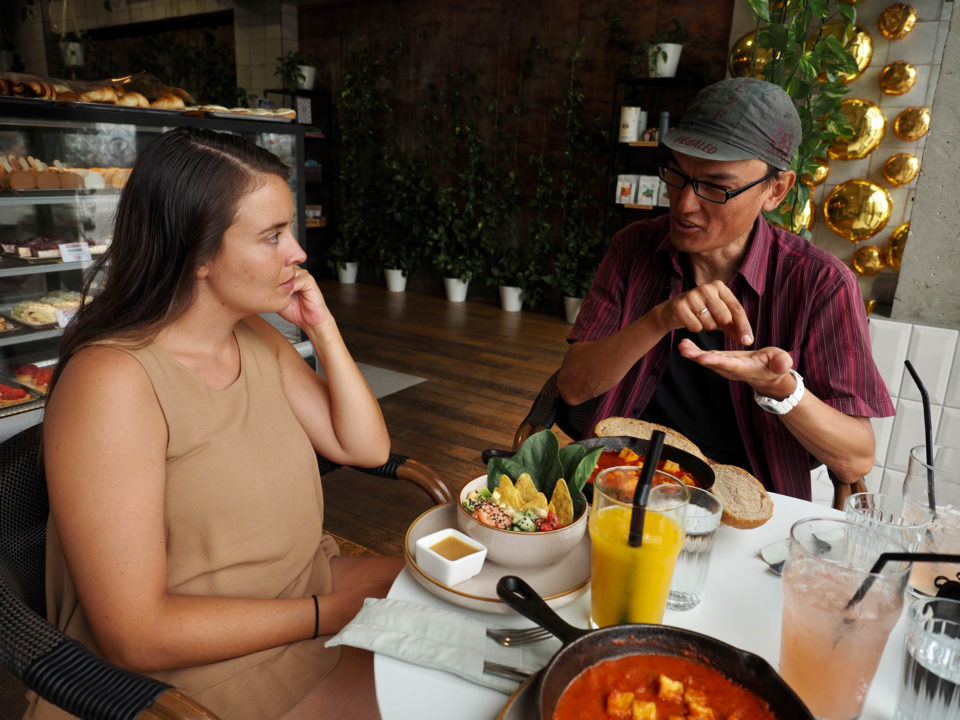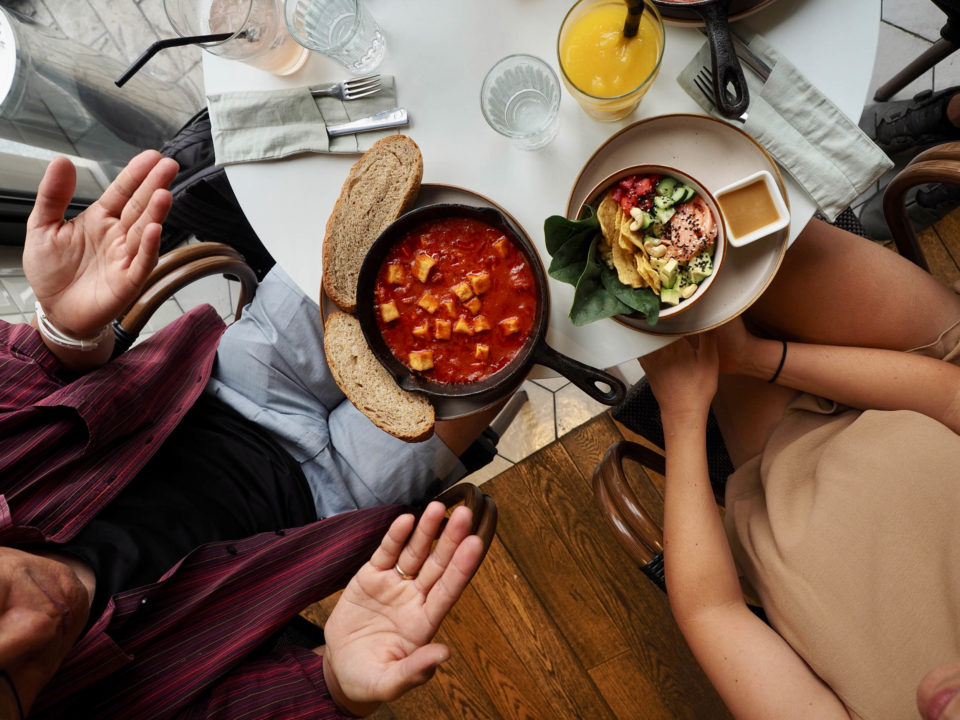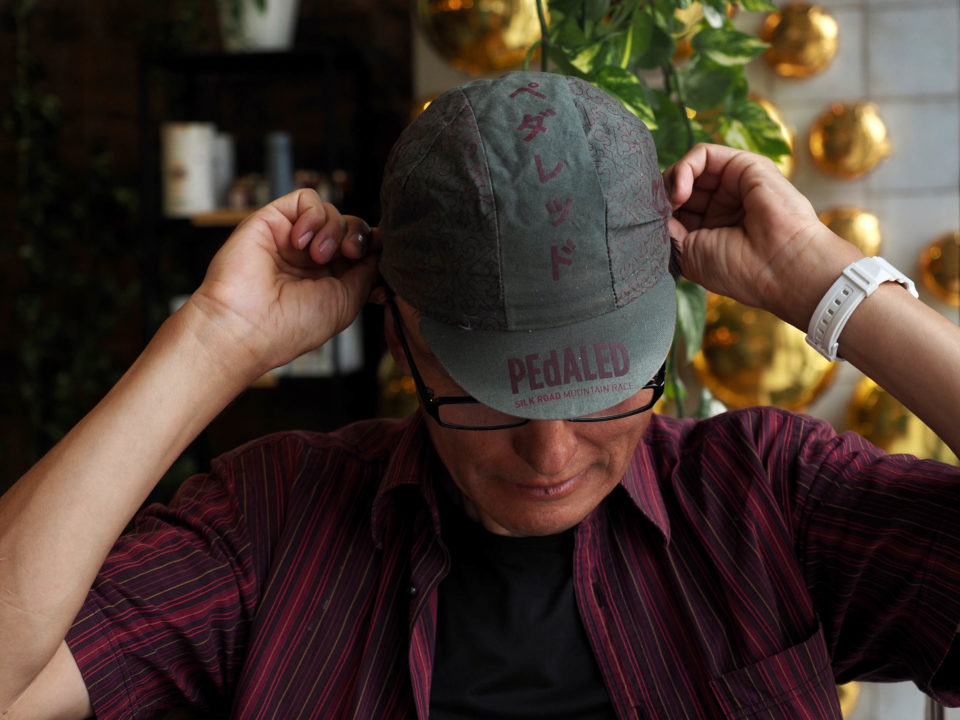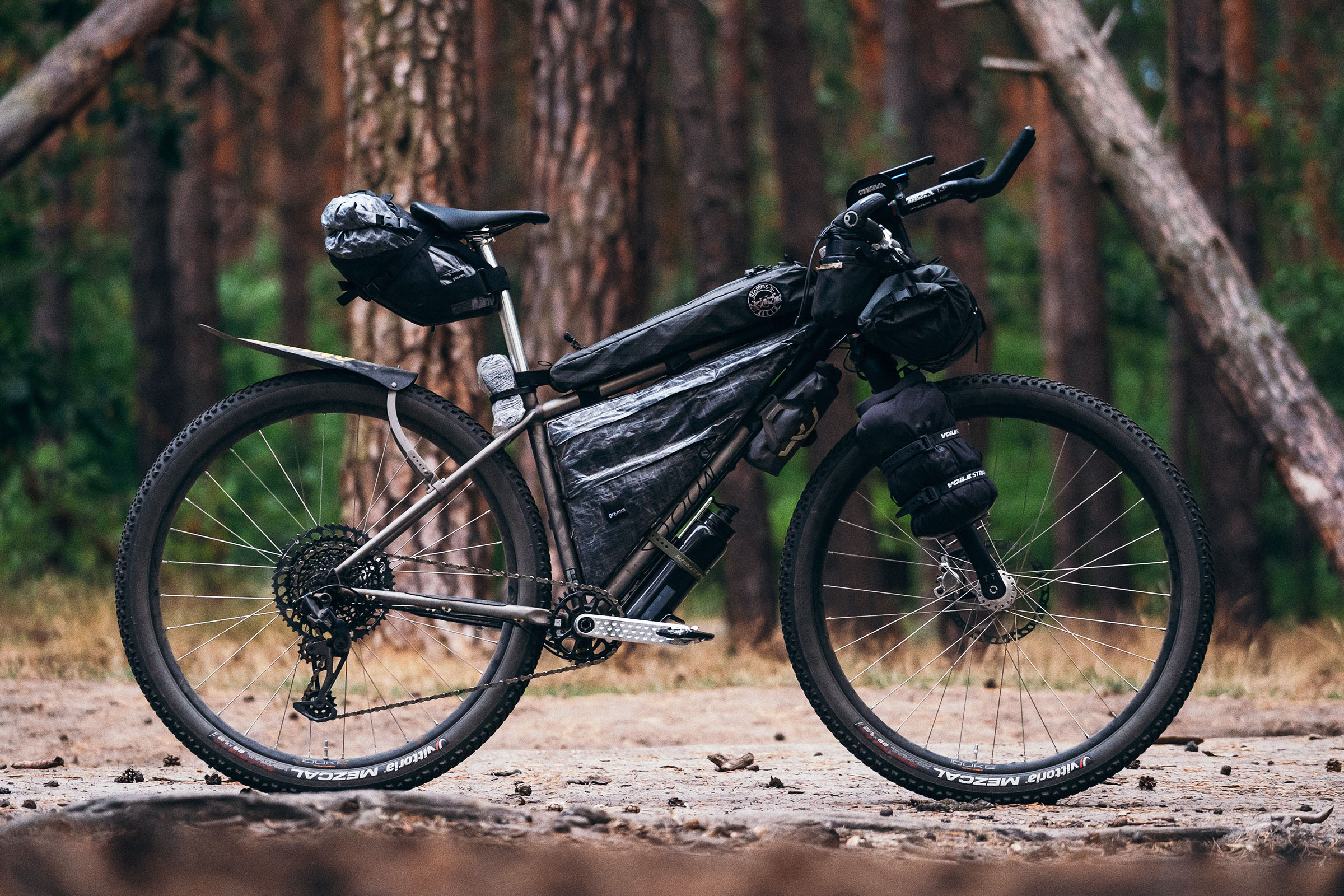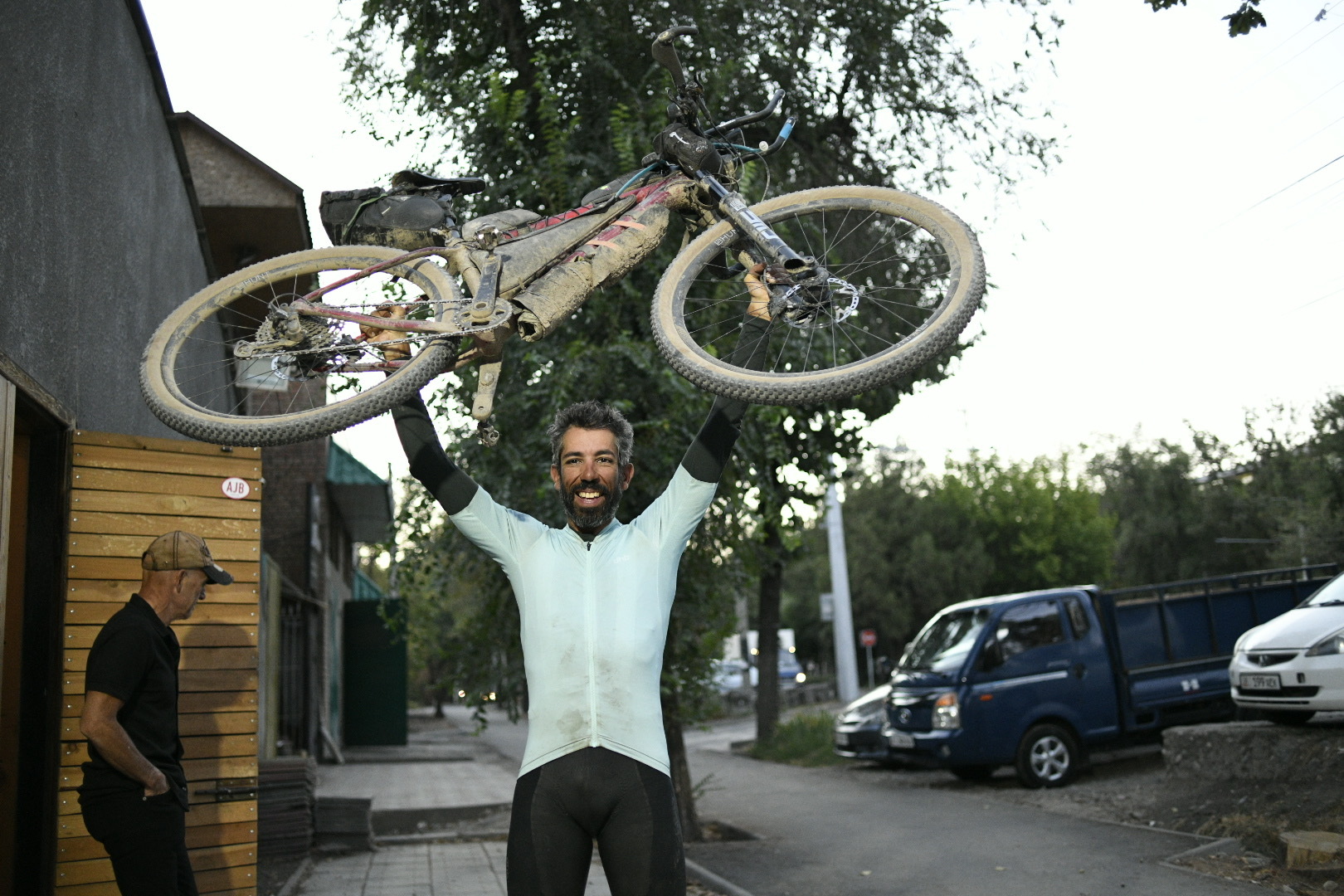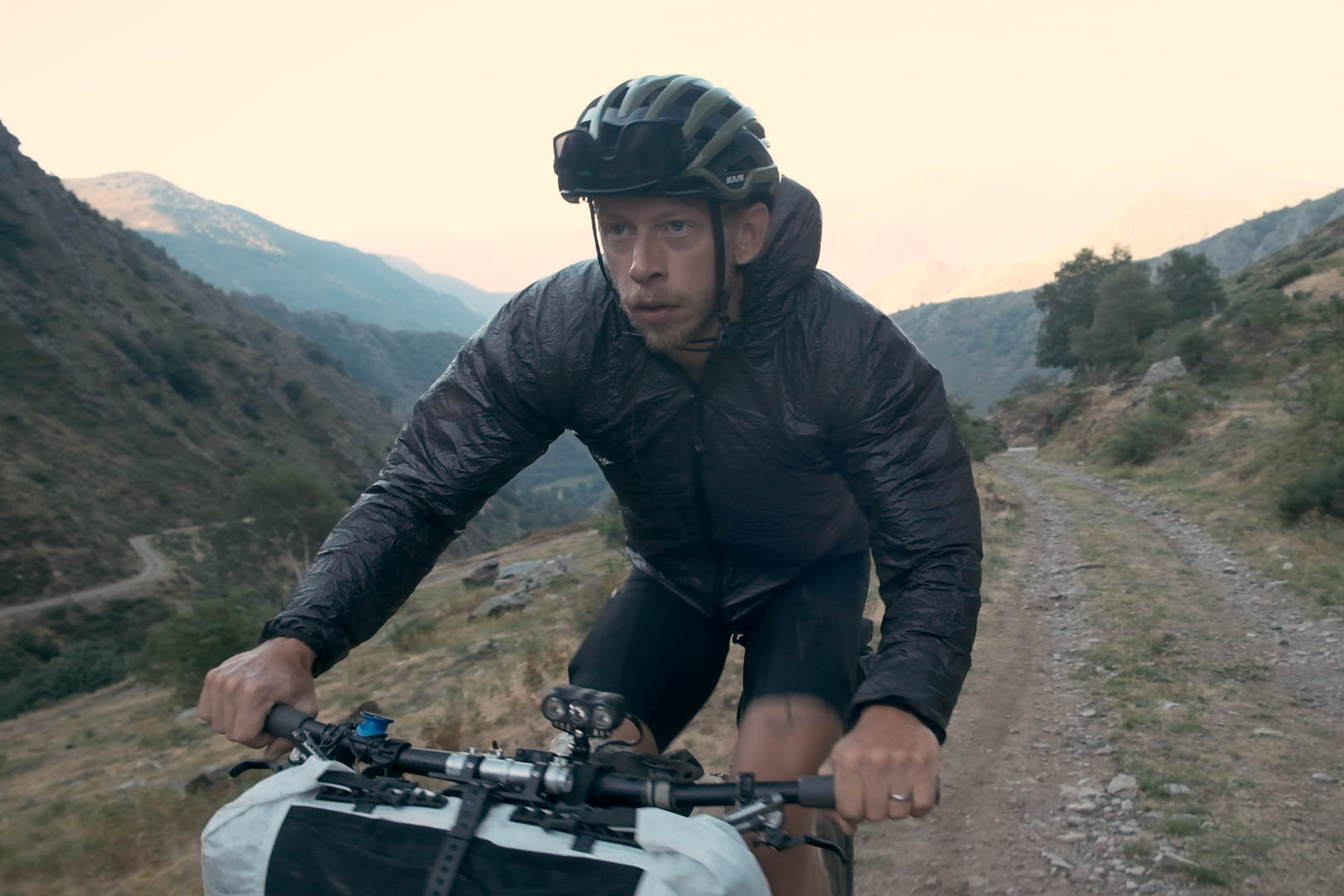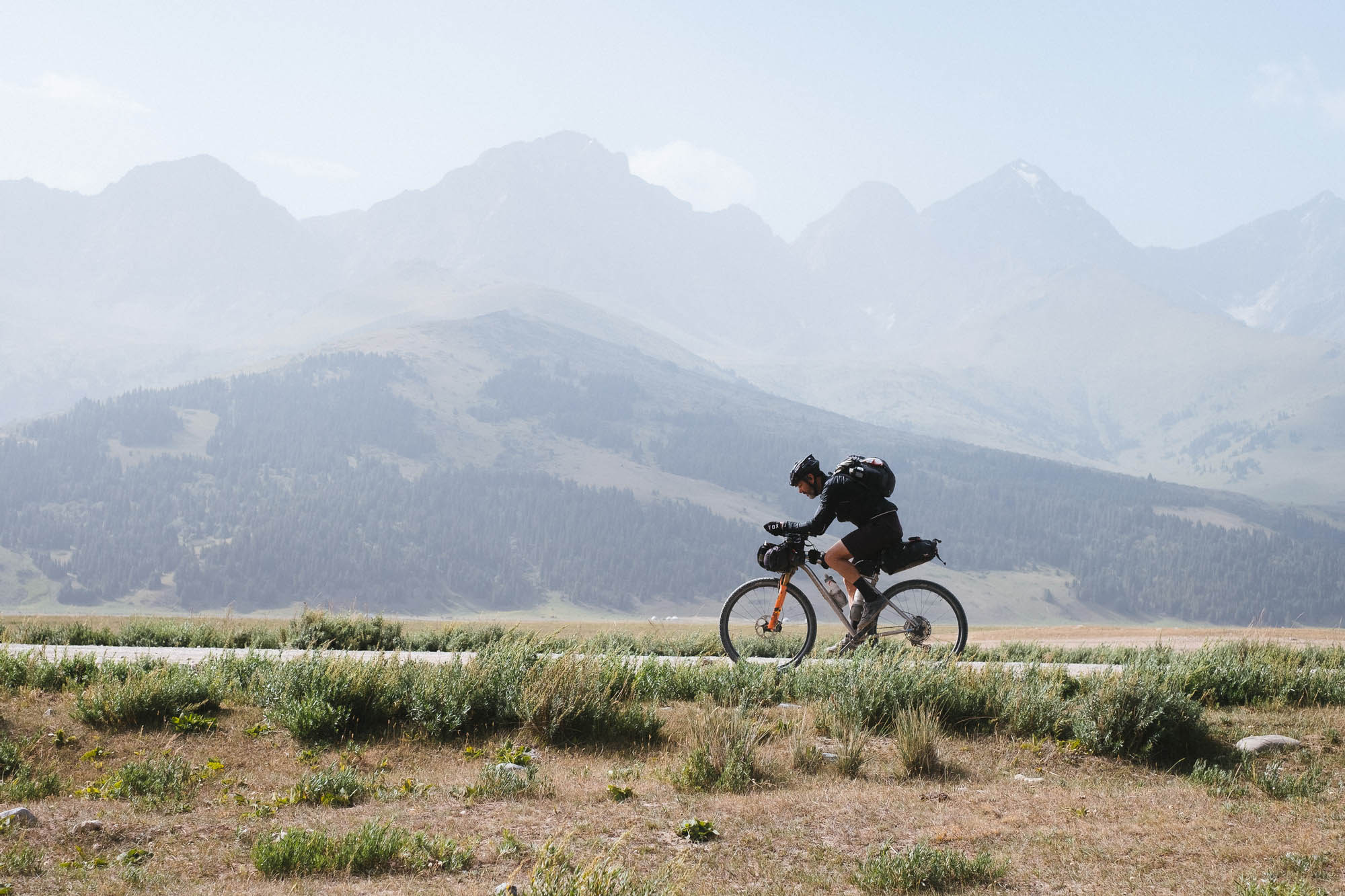Rider Reflections on the 2022 Silk Road Mountain Race
Following the 2022 Silk Road Mountain Race in Kyrgyzstan last month, Belén Castelló and Tristan Bogaard sat down with a diverse group of participants for a deep dive into their varied experiences during this year’s race. From the overall winner to several riders who were forced to scratch, find their post-ride interviews here…
PUBLISHED Sep 5, 2022
Words and photos by Belén Castelló and Tristan Bogaard
Kyrgyzstan is quickly becoming one of the top bikepacking hubs of the world, and the Silk Road Mountain Race has a lot to do with that. Originally created by Nelson Trees in 2018, this ultra-endurance race changes course every year, showing its riders an ever-changing perspective of the mountainous Kyrgyz outback. It’s about 1,900 kilometres in length and traverses mountain passes of every calibre, through the most remote and wild landscapes one can imagine. Weather, stomach bugs, and altitude sickness all add to the challenge, not to mention the high summer temperatures and risk of injury.
So, who rides races like these, and why do they decide to do so? How do they cope with fatigue, distance, and lack of food and sleep? What are their thoughts on the world’s toughest ultra-endurance race? To find out, we invited some of the riders to sit down with us at a cafe in Bishkek, for a well-deserved lunch and relaxed chat on their personal reflections after starting, scratching, or making it all the way to the finish.
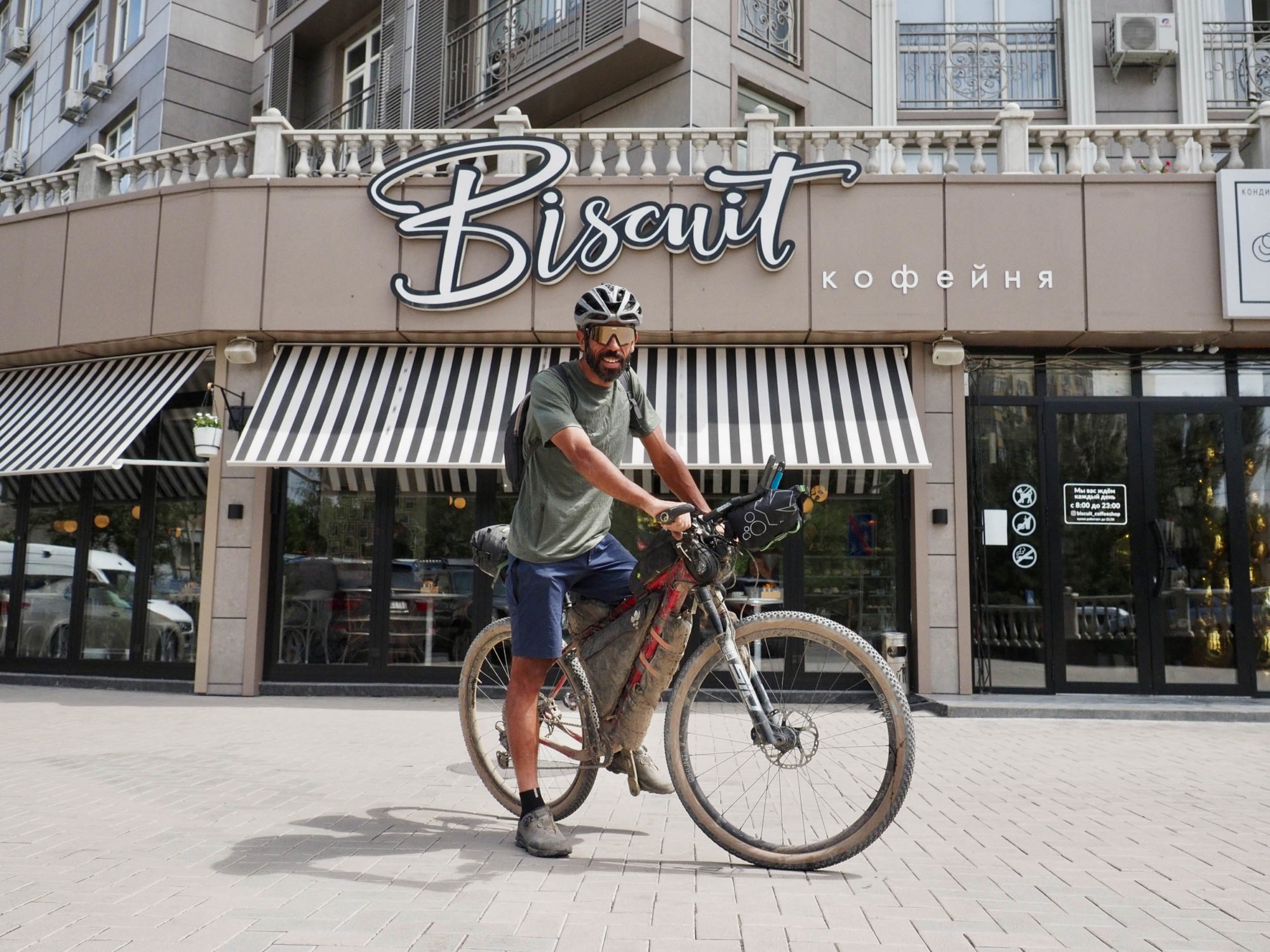
SOFIANE SEHILI
Sofiane is a professional ultra-endurance racer with multiple first-place finishes under his belt, including the 2021 and 2022 editions of the Silk Road Mountain Race. We sat down with him at Biscuit just a day after his arrival in Bishkek, where he set a record time of 7 days, 5 hours, and 6 minutes. His legs were still a little shaky, and his voice was scratchy from a bout of tonsillitis he had developed ahead of the race. Once we ordered our food, we asked him to fill us in on his winning ride.
“While riding from Bishkek to Osh, just four days before the race, I got a bad case of tonsillitis. I could barely sleep and felt very weak. Basically, I stayed in bed for two whole days trying to rest, but it didn’t help me recover. On registration day, I was hoping to wake up recovered, but I wasn’t so lucky. I worried I wouldn’t be able to be competitive in the race but decided to start anyway, knowing there was a good chance I’d have to stay back and ride short days in the beginning, trying to find the right rhythm.
I had a tough time getting over Jiptik Pass. The last 300-400 vertical meters, I thought I wouldn’t make it. It took me forever. Up to that steeper part, I was feeling pretty okay and could keep up with the three guys in front of me. And then, on the last stretch, my power faded as I watched them pulling away. I knew I wasn’t going to be able to catch them. Every 10-15 minutes of effort, I had to stop and sit down to recover because my heart was pounding, and I was constantly out of breath.”
With this rough start in mind, was this year’s edition harder than last year?
“I would say that, actually, this year was easier. The days after Jiptik were quite fast rolling. We had a lot of tarmac, good roads with not too many hike-a-bikes, and while the temperatures were generally high, it wasn’t unbearable. Last year, I got caught in a snowstorm on day two. The weather was very unstable with more storms and showers.
I feel like this year, the difficulties were evenly spread throughout the race, whereas last year, all of them started after CP2. There, the Soviet Road came, as well as navigating through a dried-out lake. Then you had to climb over Tash-Rabat Pass, which was a massive, six-hour hike-a-bike. As it was the end of the race, most of us were tired and weak.
For me, this year was better because I had a better bike. I feel like I had more fun. Mentally, I was more prepared because I had done the race before, so I kind of knew the name of the game. It’s the SRMR, and you know you will have to push your bike up and down. The fact that I had the right bike and tires and better weather made it even more fun.”
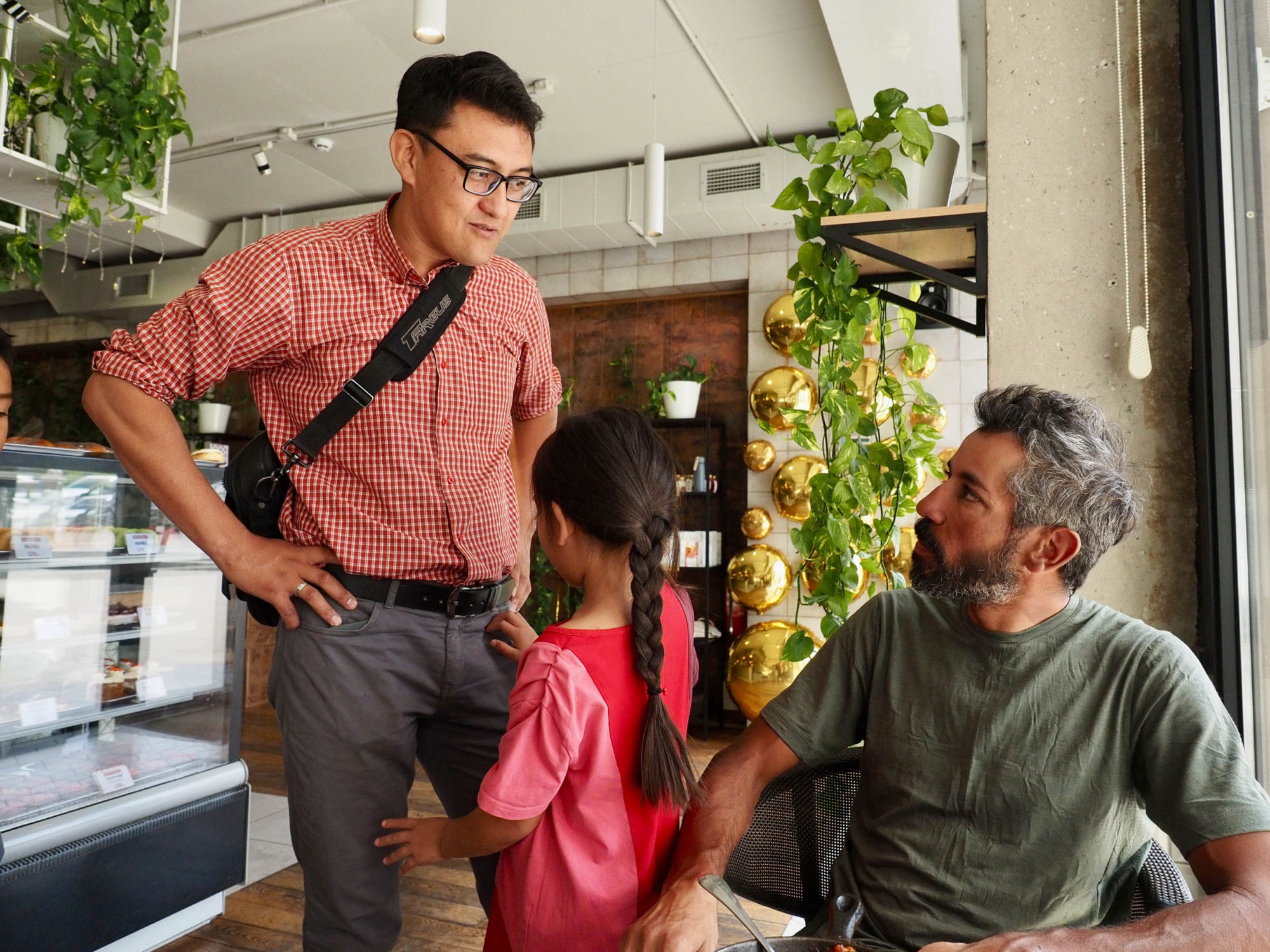
Did you have the feeling that you were reaching a limit at any point during the race?
“Actually, one of the reasons I really enjoyed the race is that, since I started sick, I was very conservative and cautious from the beginning. I decided I would sleep indoors for the first night to get a good four hours of sleep and that for the first 2-3 days, I wouldn’t push too hard. I figured it’d be too risky to start like I usually do: as fast as I can and sleep as little as possible. I knew I couldn’t put my body through that kind of shock after having been sick for four days.
My strategy was that, as long as I’d remain only a couple of hours behind the leader, I knew I could maybe catch up when I felt stronger again. I think this made me enjoy the race a little bit more since I didn’t push as hard as I usually do. The fact that I knew these guys and knew where I’d stood among them also helped me to stay confident.”
Multiple steaming dishes arrive at our table as we’re about to ask Sofiane about his encounters with locals. He digs into his eggs benedict and tells us that racing in Kyrgyzstan is frustrating since you can accept so few invitations from locals to sleep, drink tea, or join them for dinner in their yurt. He said they are all memorable encounters, though.
“I was in the Burkhan Valley going toward Arabel and had no plan on where to stay for the night. Fifteen minutes after dark, a kid on a horse rides up to me and tells me his house is one kilometer away and offers that I can stay there. My first instinct in these kinds of encounters is, ‘I can’t, I’m racing.’ But this time, I realized I could actually stop since it was dark and there was nowhere else to stay. In the rules of bikepacking racing, you are not supposed to take private help, but in the SRMR, since the organizer is aware of the hospitality of Kyrgyz people, it’s actually allowed.”
What was the last stretch to the finish like?
“When I was going up Shamsy, the last pass of the route, I got off my bike and started walking, then suddenly fell off a cliff. I didn’t get hurt, but the bike fell a long way down. That crash made me feel very unnerved on the downhill, so I was quite cautious descending. Then I had a mechanical that made me lose another half an hour. And then I needed to charge my GPS. I’d also checked the tracker and realized I was less than an hour and a half ahead of James Hayden, who’d been riding close to me for days.
When I got off the pass, I charged my tracker and took a quick nap. Then I got going, knowing I’d lost 30 minutes on the mechanical and another 45 minutes on charging my GPS, which meant James wasn’t too far out. I decided to push hard on the pedals, but at some point, he was only four kilometers behind, which is about 15 minutes. At the top of the last climb, I looked back and I could see his light in the distance. From that moment on, I started flying. I had a real sense of urgency, and I was much fresher. Right before I checked that tracker, I was falling asleep, but afterward, I was fully awake, full of adrenaline. It’s great that all the dot-watchers experienced such an exciting finish.
What’s your advice to other riders who wish to win races like these?
“No real strategy will help you win the race since it strongly depends on who you are and your approach to racing. Something that works for me might not work for you and vice versa. One thing, though: stay off the meat! You never know where it’s been and for how long it’s been there. Buy bread, cheese, Coke and chocolate instead. Those probably won’t make you sick.
More seriously: bring a mountain bike with a suspension fork and wide tires. Small gears are key. I had 30/51 and still had to walk sometimes. Bring warm clothes and a sleeping bag. Get mentally prepared, and be a person on a mission. If you think about scratching, think of all the things you’re going to miss. It’s a shame to miss out on all these magical places. This is your chance to see things far away from home. They are here now. When are you going to come back? You don’t know. So don’t scratch.”
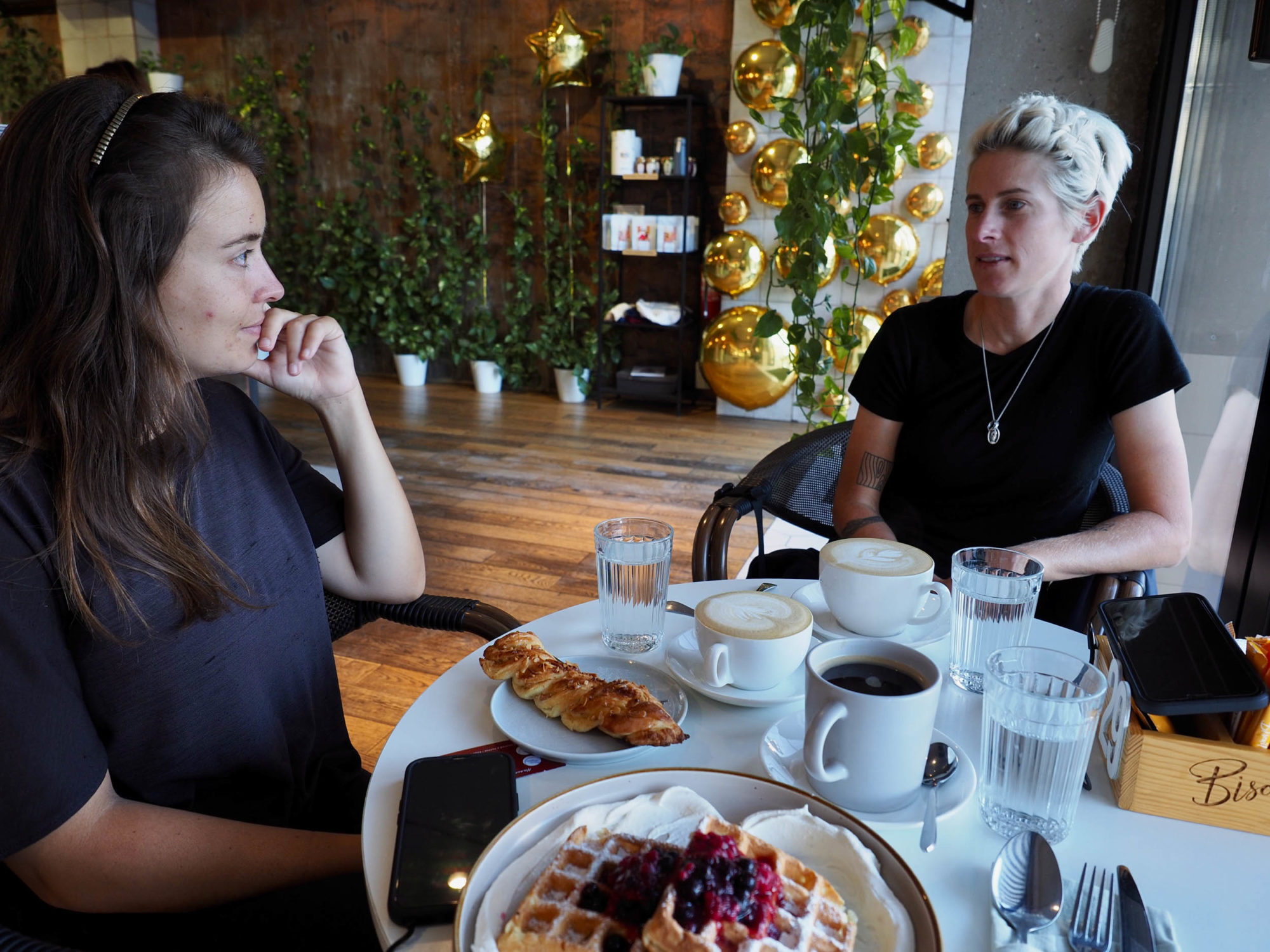
SCOTTI LECHUGA
Scotti is an ultra-endurance racer and mother of two from Arkansas. She comes from a professional racing background but made some big changes to her life in 2017 following a burnout. While building a healthier lifestyle around the bicycle, she found out about the SRMR and raced it as a pair for the first time.
This year, she came to Kyrgyzstan to try the race solo. But, due to what was probably the worst bout of sickness a rider had on the 2022 edition, she had to scratch from the race. During her recuperation in Bishkek, we met for a coffee to talk through her experience.
“Last time I was here, in 2019, I was more careful. I brought a lot of my own food, and I did well. I finished the race. This year, I ate a bunch of local food before the race, and I regret it. It sucks.”
As soon as you landed in Osh, you got a fever and remained sick for three days ahead of the race. Yet you decided to start. What happened during your time racing?
“I’d come all this way for this event, and so I was hoping I could ride my way out of feeling weak. But on night one, at about 210 kilometers in, I’d already ridden for 24 hours and needed to rest. Until then, I was doing pretty well. But when I was lying in my bivy for about an hour, my stomach turned upside down. I was sick from then on. That’s when it all started.
Day two was really, really hard. I limped my way through it. I was struggling to find anything that felt fun. And since I couldn’t eat or drink, things started going downhill quickly. The temperatures skyrocketed. It was so hot, yet I couldn’t hydrate. I spent a second night out at a spot I thought would be undisturbed but felt very unsafe. A bunch of guys came and were yelling from the road and shining lights on me. So, despite feeling really ill, I packed up and went ahead to find another sleeping spot.
It was so dusty and dry on the morning of day three, but I couldn’t get any water down. Getting to Arslanbob looked easy in elevation since you’re not climbing any pass, but it was full of all these very steep hike-a-bikes and sketchy descents, and I was so slow out there. When I got to CP1, I tried to rest as much as I could to see if my condition would improve.”
Unfortunately, things didn’t improve for Scotti at CP1, even after staying there for almost 24 hours. Eventually, she decided she had to be kind to herself, that she wasn’t enjoying it anymore and simply felt too sick and miserable. We asked her what it’s like to come to the heavy and confronting conclusion of scratching.
“I really hate quitting. Not finishing hurts my spirit. I’ve had to drop out of another race before, and it’s no fun when you come this far and you prepare all this time. And… I have kids. I’m away from my family, so to be here and not do what I came to do is quite sad. I know the gravity of that from having done it before. I didn’t want to quit, but my body was absolutely drained.”
Do you know what you’ll tell your kids when you come home?
“I think the dialogue with the kids will center around my learning that the process towards a goal is what you have to fall in love with. Because the race itself doesn’t define you. The race is a very short time in a lifespan, and if you allow this one moment to define everything about you, that’s just not real life. All that happens at home is my real life. For my boys, the important message is to fall in love with the process of what you do, to love what you do, and to learn that, if something doesn’t come through, you still have all this experience and wealth of knowledge and something to give back to other people. Make that the important part.
Even when you do have a good result, it’s transitory. As an athlete, I’ve had wins, and it feels good, and you have these low moments that you have to accept too as part of the journey. That balance is so hard but critical for the experience. Failure is part of our growth pattern.”
Are still happy with your experience this year?
“No matter what happens out here, every person lives a unique experience. And that’s what’s beautiful about this style of cycling. Whether you’re the first person who won the race, or the last person to finish, or one of all the people who had to drop out in between, you’re going back home with unexpected stories to tell. So much is out of your control, but it means you learn a lot about yourself in the process. That’s something that you can take home whether you achieved what you were hoping for or not.”
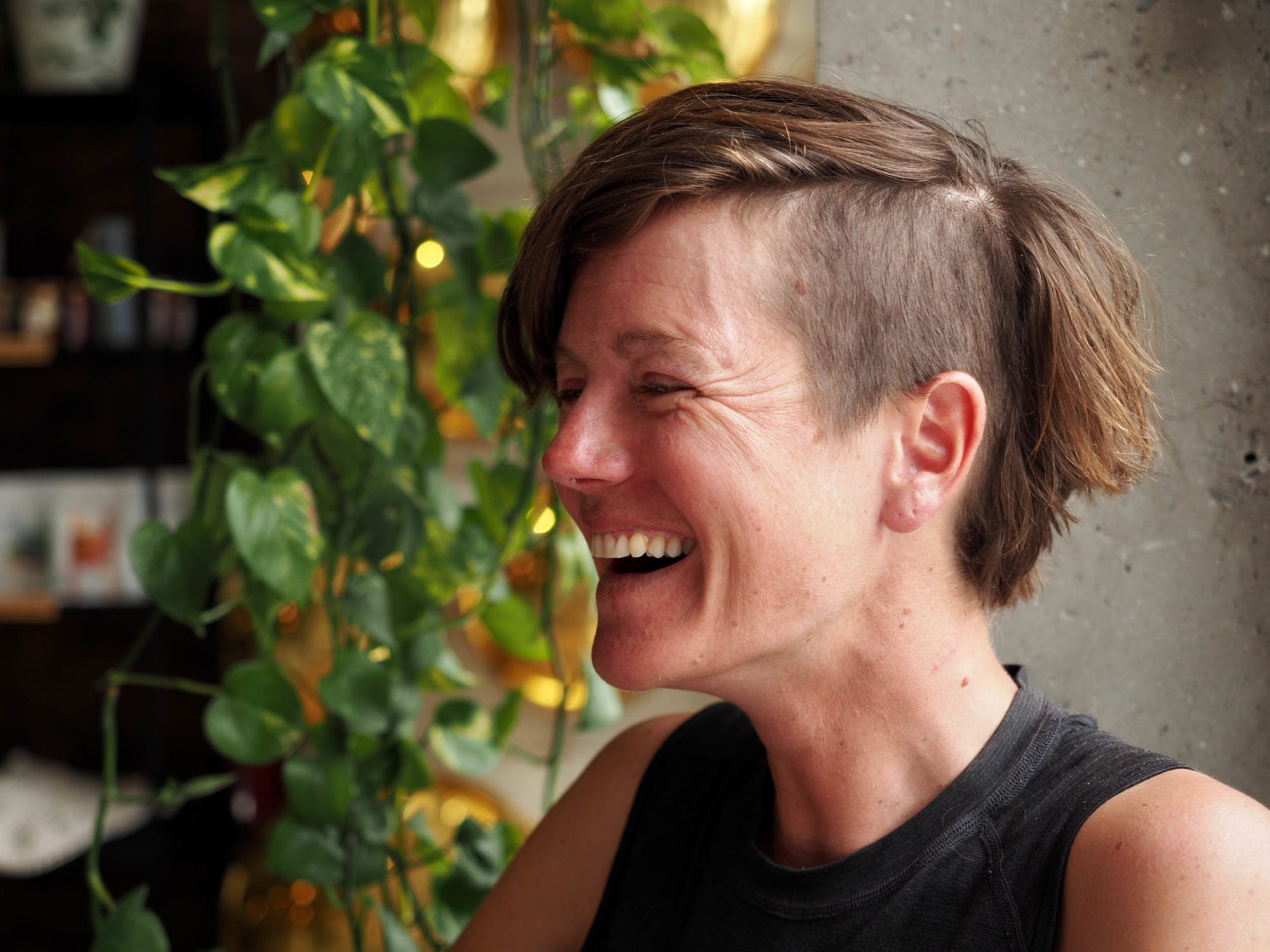
DANIELA KIRCHNER
Daniela was the first solo woman to finish the 2022 Silk Road Mountain Race. As a mathematician from Austria, she didn’t have a competitive cycling background. When we sat down over lunch together, she told us how she wasn’t even good at sports in high school. But while on holiday in New Zealand in 2019, she picked up a second-hand bike, bought a tent, cycled around the country, and loved it. She entered her first ultra-endurance race, the Three Peaks Bike Race, in 2019 and has gradually started riding more races, using her vacation time to do so.
“I can’t remember how I discovered the SRMR, but since I had been in Kyrgyzstan 10 years ago and remembered I really liked the nature and people there, I thought I’d like to ride it one year—2022 felt like the right time to do it.”
Do you train or prepare for these races?
“For my first race ever, I cycled every weekend. I packed my bike on a Friday and went cycling with my tent somewhere in Austria. Since then, I haven’t really prepared. I just go ride it. It’s hard to prepare. I don’t ride these races for the sake of being fast. I just want to ride my bike. It’s not my spirit to just be faster, and it’s also not my job. I don’t want to make it my job either because I might not like it anymore. My goal is to have a good time.”
Before riding the race, she wanted to see more of Kyrgyzstan and rode her bike around the country on the way to Osh. She acclimatized well by camping at 3,000 metres and got sick a few times, too.
“By arriving early, you learn how the country works, where you can find things. It takes a few days to figure out things such as what you can find in a shop. So, for this race, you not only need to ride your bike but also figure out how Kyrgyzstan works.”
What was the first section of the race like for you?
“The first day, getting over Jiptik Pass, was my worst day on the bike ever because I wasn’t riding it. I was pushing a bike on a hiking trail that you can’t even ride down. For me, that just doesn’t make sense. On mountain passes, I want to be able to at least ride uphill, downhill, or enjoy a great view. But none of these categories were fulfilled for me. After a dangerous partial descent at night, though, things got better. I just cycled at my pace, doing my thing. After three days, I arrived at CP1 and was surprised at how fast I had been. I had planned for five days.
As for the heat, I put my whole head under water and ate soups whenever I had the chance to stay cool and remain hydrated. I had no mechanical issues; my mountain bike was brand new.”
At CP1, you met Scotti and realized you’d become the first solo female rider. Did this motivate you to ride faster and stay ahead?
“After CP1 and talking with Scotti, who was feeling terrible, I thought: ‘I feel I can go faster. Not to win, but because I feel I can do it.’ I asked myself why. It’s hard, but I was having a good time and taking care of my body. I was sleeping from around 9-10 p.m. until 4-6 a.m. wherever I was. Sometimes, I thought of sleeping less or going faster, but I realized: ‘No, I’m enjoying myself and am already faster than what I thought I’d be.’ So, I figured I shouldn’t change it since it was working. Less sleep means I could hallucinate or I could crash because I wouldn’t be able to concentrate. There was no point for me to push myself to the limit, as I just came here for the experience.”
At some point during the race, you said that people realized you were a woman when you took your helmet off. Did you get any reactions from locals who were surprised to see a woman riding such a tough race?Has riding this race and finishing as the first solo woman inspired you to explore the more competitive side of cycling?
I don’t want to do this professionally, but I definitely want to join more races. However, I don’t know exactly what I’d like to do. I need to process this. For me, the Silk Road Mountain Race was easier than I thought, but the good weather probably helped a lot. There are so many races and places I want to visit, so I don’t think I’ll race this one again. I have wanted to do this for four years already, so I’m happy it’s done. I’m happy I finished in a good state, which makes me feel proud of myself. I’m happy I didn’t collapse at the finish line.
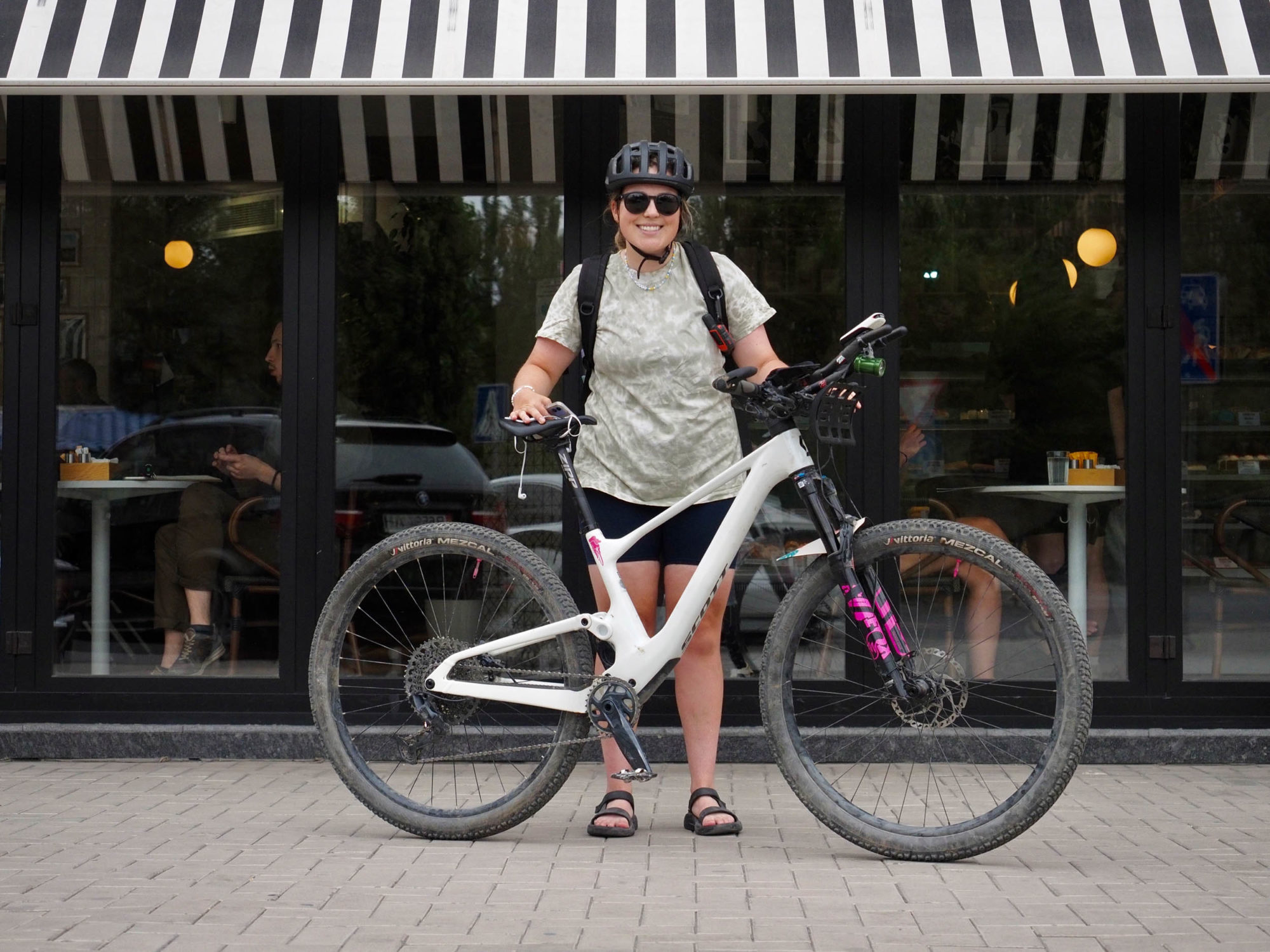
MEL WEBB
Mel, from Vancouver, traveled to Kyrgyzstan together with her partner Jake. They entered the race individually, which meant they were not allowed to help each other. Three days ahead of the race, she caught a fever and spent her time in Osh mostly in bed, hoping to recover for the race. With the race commencing at midnight and headed straight for a 4,185-meter pass, the challenge ahead was substantial.
“We took a nap before the race started, and the second my eyes opened, I just started crying. And I cried for the first two hours of the race. I couldn’t figure out what was going on. Maybe it is because my life was about to change. That I’m doing this wild thing. Maybe this is the longest Jake and I have been apart?
I hated starting at night. I hated it so much. And I hated how fast everyone went right from the get-go. I though, “‘We are riding our bikes for 14 days, why are you all riding so fast?.’ That first night felt like a time warp. Then the sun came out as I caught up to a bunch of people who had stopped to take naps.”
What did it feel like being on top of Jiptik, having climbed one of the toughest passes of the race?
“I thought I’d feel a lot more relieved when getting to the top, but I wasn’t really that happy. I had hiked by myself for so long. I found the descent very stressful because this woman in front of me kept slamming on the front brake while she walked her bike. I was trying to keep myself safe but I also didn’t want her to freak out and fall. I ended up passing her and had to leave her behind. Jiptik was a little too hard. On the one hand, I was pissed about it, but I knew exactly what I had signed up for.”
When you sign up as a solo rider, you’re not allowed to help others in the race. What did this mean to you?
“It’s about doing the right thing when no one is watching, even when no one might catch you, whilst also thinking if your actions are going to impact the racers in front of and behind you or not. If they do, then it’s probably not the right choice.”
After four days, you ended up scratching as a stomach bug caught you yet again. You were sick and couldn’t eat. What are some of the lessons you learned in those few days?
“I think acclimation is a big deal to be more comfortable in the first few days. It would have been worth it to spend a couple of nights up high and eat local food. People have different attitudes about things, so you have to find the right balance between connecting with riders out there and doing your own thing.
Also, I’m 26 years old. I don’t want to destroy myself at 26. This is what I want to do for a long time, so if it means that I made it four days into the race before I had to scratch, that’s fine. It’s really heartbreaking cause you put so much time into training, but before we even got here, I told Jake: ‘I can’t believe we’re going. The fact that we’re going is already amazing.'”
Do you feel like you did everything you could, and are you at peace with the decision to stop riding?
For me, the hardest part of ultra-cycling is that people celebrate those pushing past very unhealthy limits. And they say how badass you are for cycling with a broken knee or saying it’s a greater test of strength or character for pushing through and not being able to eat for a few days.
Does that make you a better person? I don’t think so. And so, when I scratched, I thought, ‘Am I lame for putting my health first?’ Because I’ve seen so many of those headlines, it felt like I could have done more. I could feel this terrible and still ride my bike. But what’s another day compared to getting healthy and being able to continue riding my bike in the long run?
I want do this until I’m 80 or 90. I want to ride my bike forever. I don’t think that one race is the end-all-be-all. I was a hard 24 hours after scratching because I felt like I had let myself and other people down. But I’m at peace with it now and happy to have the opportunity to talk about a different angle of the sport. You typically only see the stories of the people who push through incredible adversity, and that’s not the only thing that happens out there.
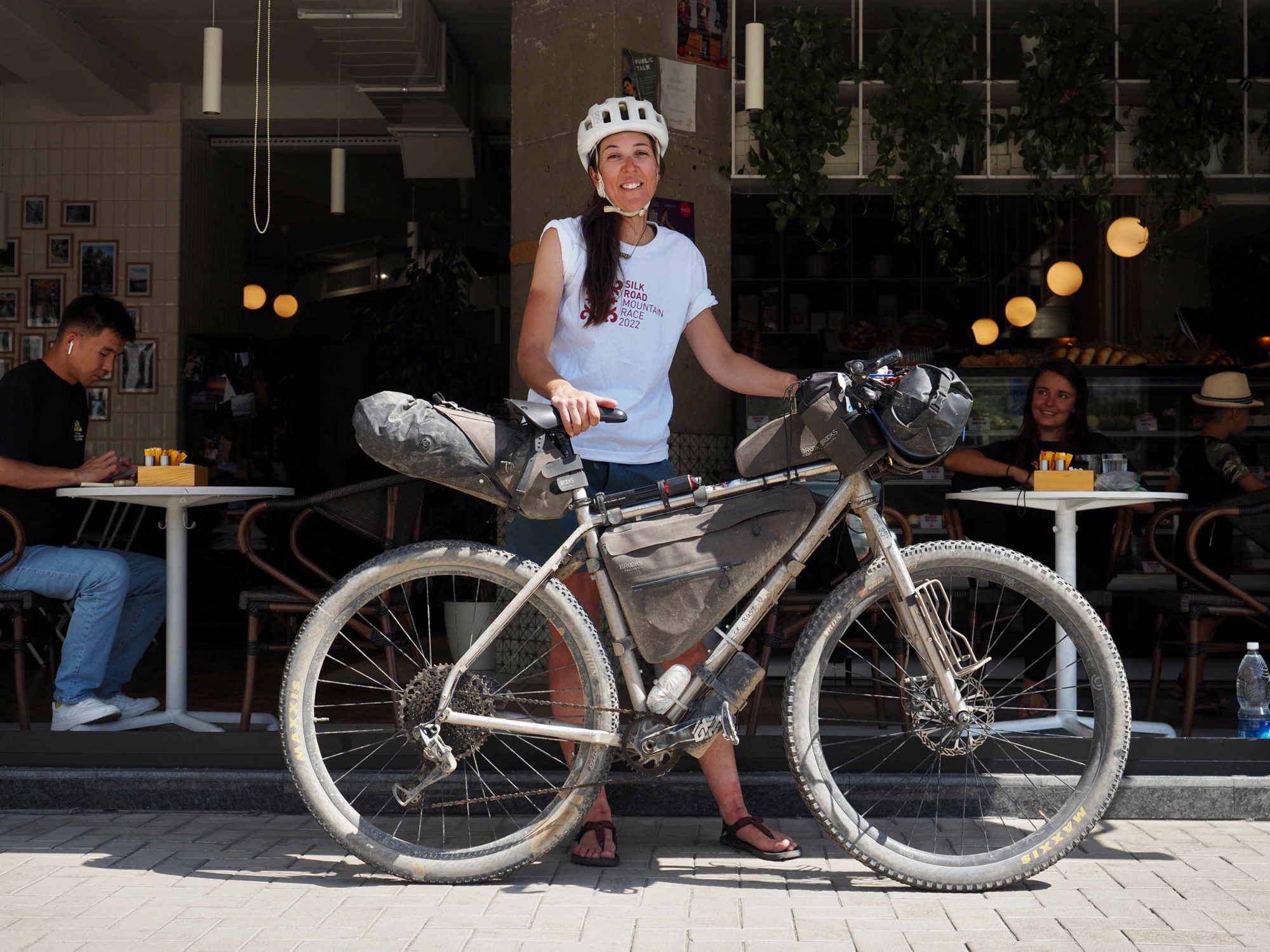
ELEANOR MOSEMAN
Eleanor has a long history of traveling by bicycle. She spent time on her bike in Tibet, China, and Central Asia during a time when these places were typically only visited by long-distance cyclists. She signed up for the SRMR after four years of wishing to ride it and rode most of it at the back of the pack. Eventually, after some had scratched and others rode ahead, she spent a long time alone at the tail end, just fast enough to make it to each checkpoint. The day after her amazing finish, we sat down over lunch to reflect on her “chasing the snail” experience.
“When I entered this race, scratching was not an option for me. I planned too long for this. I was in Kyrgyzstan to make it to the finish. But, being at the back of the race, I learned there’s a lot of chatter back there. When somebody starts talking about scratching, another person starts considering it too. Some people in the back felt they wouldn’t be able to catch up, and so they gave up.
But you really have to not get caught in other people’s shit. That’s something I learned after the first few days: ‘Do not listen to what is going on around you.’ Every time I did, it totally caught up with me. Just stick to what you want to do. I was new at this, so I thought that others might know better. I didn’t trust myself because of my lack of experience.
When I did meet up with people who could ride faster and harder, I could keep up with them, and it was fun. But I noticed that when I broke away from the back, I really enjoyed being by myself. The social aspect is nice, but sometimes I’m having a day, and I don’t want anyone to see me crying or talking out loud, giving myself serious pep talks. An event like this is such an emotional roller coaster.”
Did your riding style change along the way?
“I feel like my riding got stronger. I loved it. It’s weird. After a week, I felt like my legs actually started working. I don’t know what that was about. After a stretch of riding for 20 hours, I thought: ‘Wow! I can actually do this kind of stuff!’ My legs hurt, but it was reassuring to know I was meant to be at an event like this. I am not the fastest, but I can do a big stretch and some climbs. I enjoyed being on my own more. I’m not a group rider anyway.”
On the other hand, riding alone is also a vulnerable position, especially as a woman. Can you tell us a little bit more about your experience?
“For me, I’ve just had so much experience dealing with that stuff that it’s not really a fear. It’s more like an expectation. I ride with the expectation of being harassed. I don’t talk if I can avoid it, so that they don’t hear that I’m female. The way I look at it is: ‘I’m not going to let someone control my movements and my goals.’
Living in Asia as long as I have, I’ve always thought: ‘I’m fortunate enough to be able to ride away from a village, I’m fortunate enough to walk away from a sex pest, I’m fortunate enough to be a white, privileged woman who doesn’t have to be around a predator for the rest of her life, unlike girls out in rural villages.’ For me, it’s not a fear as much as knowing it will happen, and therefore I’ll try and deal with harassment in the best way possible. I just think, ‘Oh, here we go again.’ The fear is gone for me.”
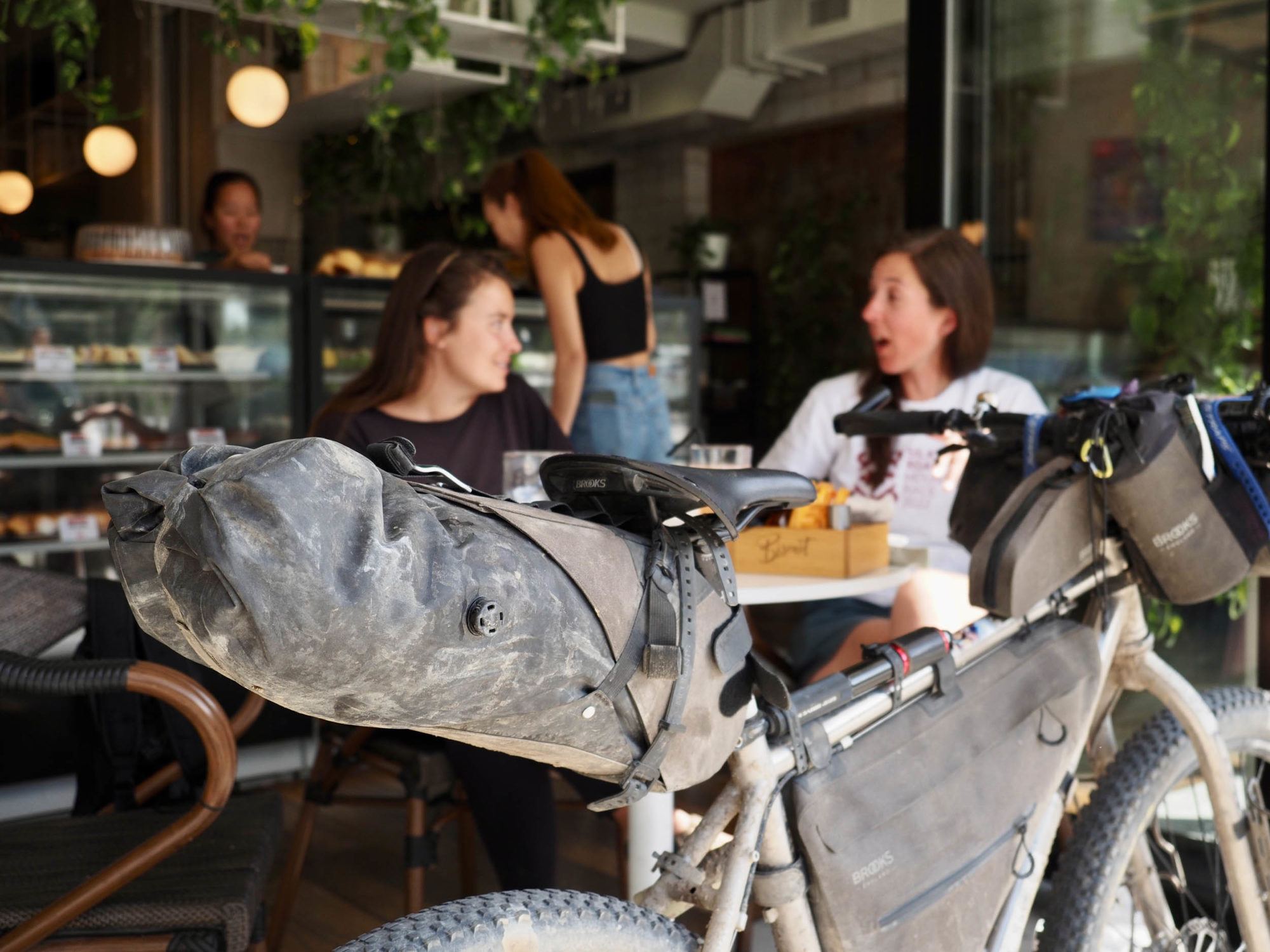
Can you tell us about the most intense night you rode through?
“Arabel Pass. This was the most stressful for me. When the sun rose, I thought: ‘Look at what you just did!’ I got off the switchbacks onto the plateau as it was just turning black. I navigated in the night through the rock fields. I figured out the whole trick of ultra-naps. I was pushing my bike up the scree, and I felt my body getting very warm. So, I just put my bike somewhere, lay down on the scree with my helmet on, and just slept there until my body temperature dropped so much that it’d wake me up.
I reminded myself that night that, even with the water crossing I was fearing: ‘Everything that you’ve done in your life is being tested right now, and there is no reason to doubt yourself. You’ve already had some of the worst experiences in your life. Just don’t fall into the water. Anything can happen. Just don’t fall into the water!’ I made it to CP2 two hours before cut-off. So, I did the night ride because I had no other choice. And that night ended up feeling so empowering—I thought I could finish! I would continue no matter what.”
Eleanor kept on riding and managed to reach CP3 just as they were closing shop. Continuing onward, she told us her legs took control. She’d already lost her climbing gear due to derailleur failure, and it got completely blocked in her cassette just 45 minutes away from the finish, forcing her to single-speed the last stretch. Meanwhile, a large group of riders and volunteers gathered at the finish to witness her arrival, and she made it to the end line with just 15 minutes to spare before the official finish on August 27th.
“I wasn’t thinking of the snail anymore. I gave up on the snail a day before cause I only cared about finishing. I preferred to be there before the deadline but was okay with being late as well.
I met this guy from North Ireland, and he said to me: ‘Oh! You are the Lanterne Rouge! People fight for that position, to be the last.’ I kept that in my mind all the way to CP2, then 3, and to the finish. It made me proud of the position and made me feel that it’s okay to be last. I didn’t realize this, but people told me: ‘Your mental state had to be different because you knew nobody was behind you.’ And they were right. Because of this, I had to be extra careful many times since I knew there would be no one coming from behind to help me if I got into trouble. I wanted to do this for four years, so it felt like a massive relief to have made it.”
Do you think that because you managed to do this, many people will believe they can do it too?
“My strength is remote wilderness issues. I can read the environment. Watching the rain, before Shamsy, I knew I shouldn’t get up that pass because it’d be too treacherous with the weather. I can evaluate situations very fast. And being alone in the wilderness, I find myself to be the calmest. Time slows down. I honestly don’t think this race is for everyone. If someone hasn’t spent a lot of time by themselves in extremely remote areas without knowing the local language, I wouldn’t push somebody to do that. I’d say: go do some camping trips first.
The reason this race appealed to me was because of the remoteness and skills I have. I can remain calm, I can take care of myself, I don’t get scared. I think people with bike touring experience have an advantage. I don’t think I have a racing brain.
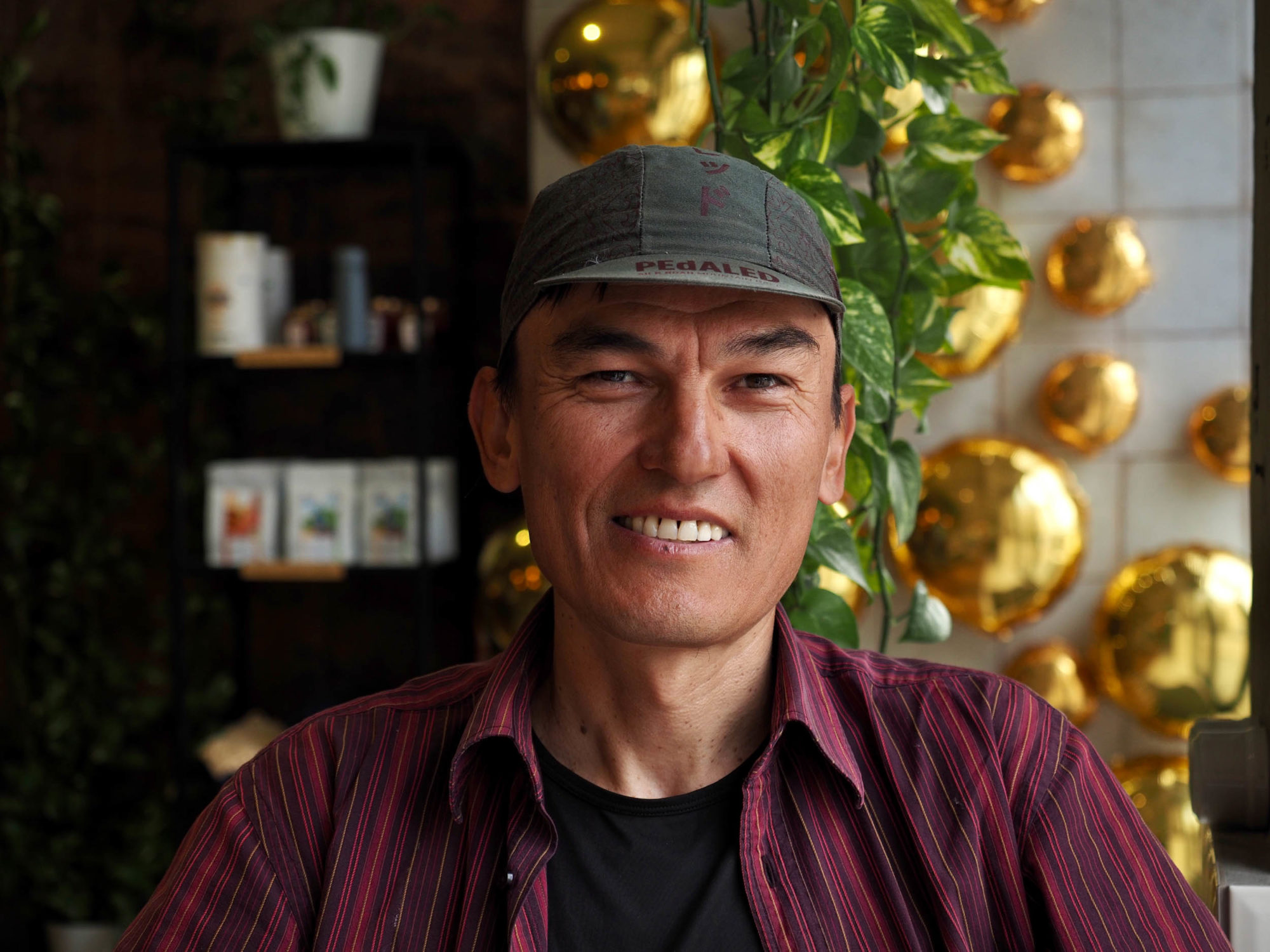
MALIK ALYMKULOV
Malik is a Kyrgyz photographer, dad, and bike rider from Bishkek. He’s the creator of bikepackingkyrgyzstan.cc and was one of the first Kyrgyz people to take part in the Silk Road Mountain Race. His motivation in joining the race was the aspect of traveling across his own country in a short amount of time, while the race organization with checkpoints and medic vehicles made the experience a very safe one. We had a chance to pick his brain on what this race means for Kyrgyzstan and why he’s ridden it three times.
“I finished the race in 2019, but I had to scratch in 2021. My older son, who was 8, cried when this happened, so, when I went back home, my wife said: ‘You should race again.’ I didn’t show a better result than 2019, but this year, the goal for me was to finish. We wanted to show our son that if you fail, you should try again and not give up.
This year, my family was dot watching me all day long. When they saw the snail ahead of me at some point, my son got scared. We had a phone call, and I assured them I could get to the end line before the time limit. And I did. Just after the race, my son told me that he wants to ride the race together when he turns 16.”
Do you feel like locals treated you differently than international racers?
“In 2007, I started traveling by car. And I’ve always insisted on paying locals along the way. If they ever rejected my payment, I explained why I wanted to. I don’t think I get treated differently for being a local. During the race, I sometimes pretended that I wasn’t a local just to get to know them better. Sometimes, they were surprised to see that I’m Kyrgyz.”
Do you think the Silk Road Mountain race is a good thing for Kyrgyzstan?
“It’s not a good thing. It’s the best thing that could happen to Kyrgyzstan. We have such beautiful, untouched wilderness. Mountains, pastures, rivers. We can offer this natural environment to the world. I think cycling is better than driving a car, and it’s a better means to travel since you don’t harm the wilderness as much.
I also think that riding bikes is the next step for locals. Seeing so many people from all around the world coming to Kyrgyzstan for this race, cycling through their villages and by their yurts, is already a good inspiration to change the way bicycles are seen here. Because most of the locals never leave their communities.”
More and more people are discovering the SRMR every year. Maybe the first Kyrgyz woman will join soon. Do you think something can be done to attract more local riders?
“The organization already gives a discount to Kyrgyz people signing up, and I think that is enough. I loved seeing the videos they shared about this year’s female riders on Instagram, which gave me an idea. I can support them with my own equipment, as I may not join next year. This would be good, especially for an ethnically Kyrgyz woman, since she’d be making quite a statement.
In 2022, nine Kyrgyz riders joined the fourth edition of the race, and two finished in 5th and 8th place.
Related Content
Make sure to dig into these related articles for more info...
Please keep the conversation civil, constructive, and inclusive, or your comment will be removed.



